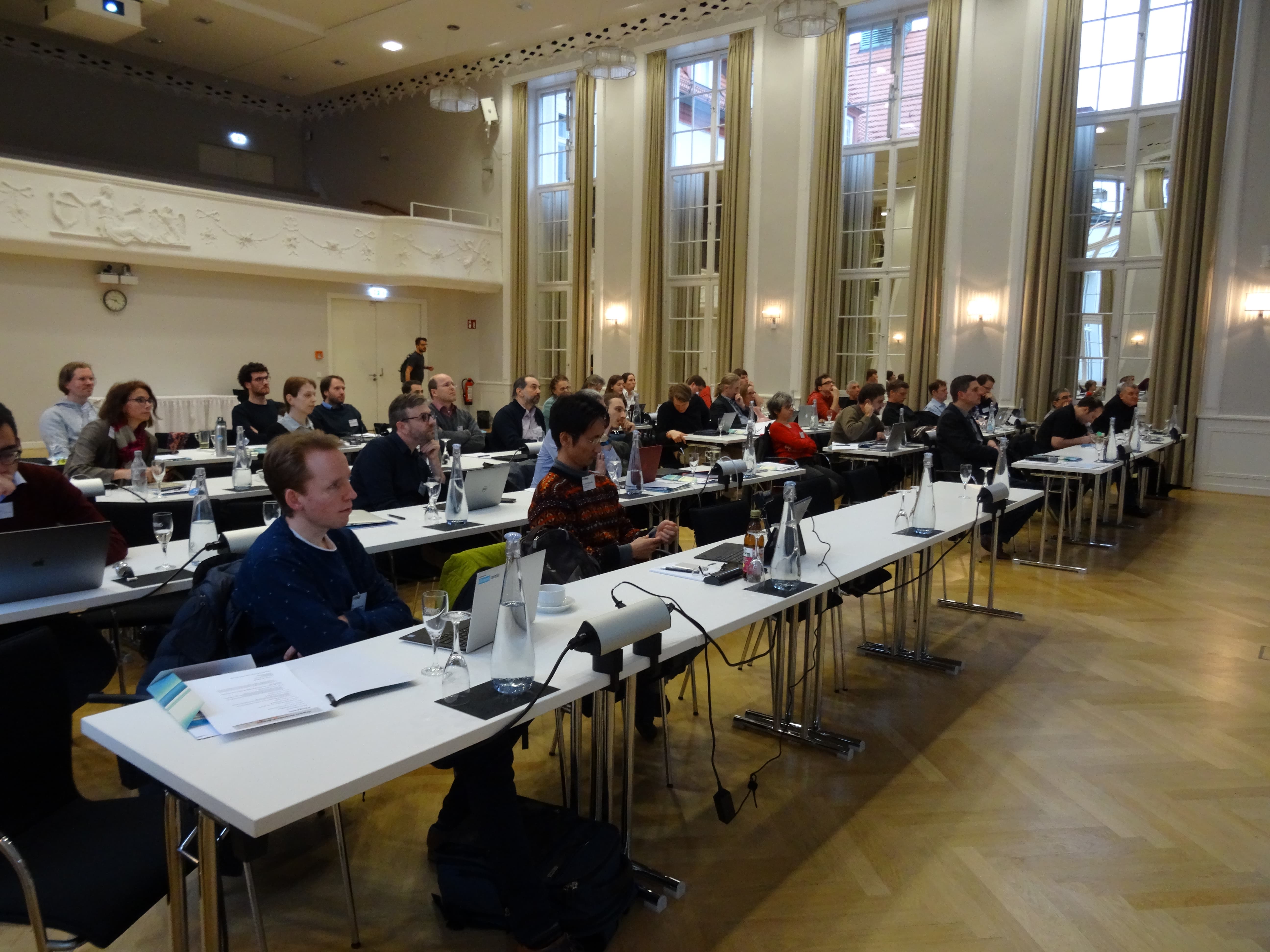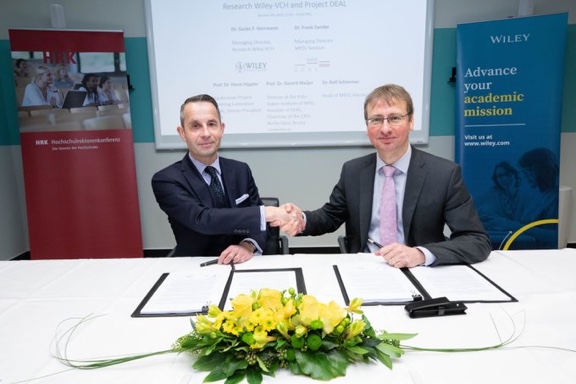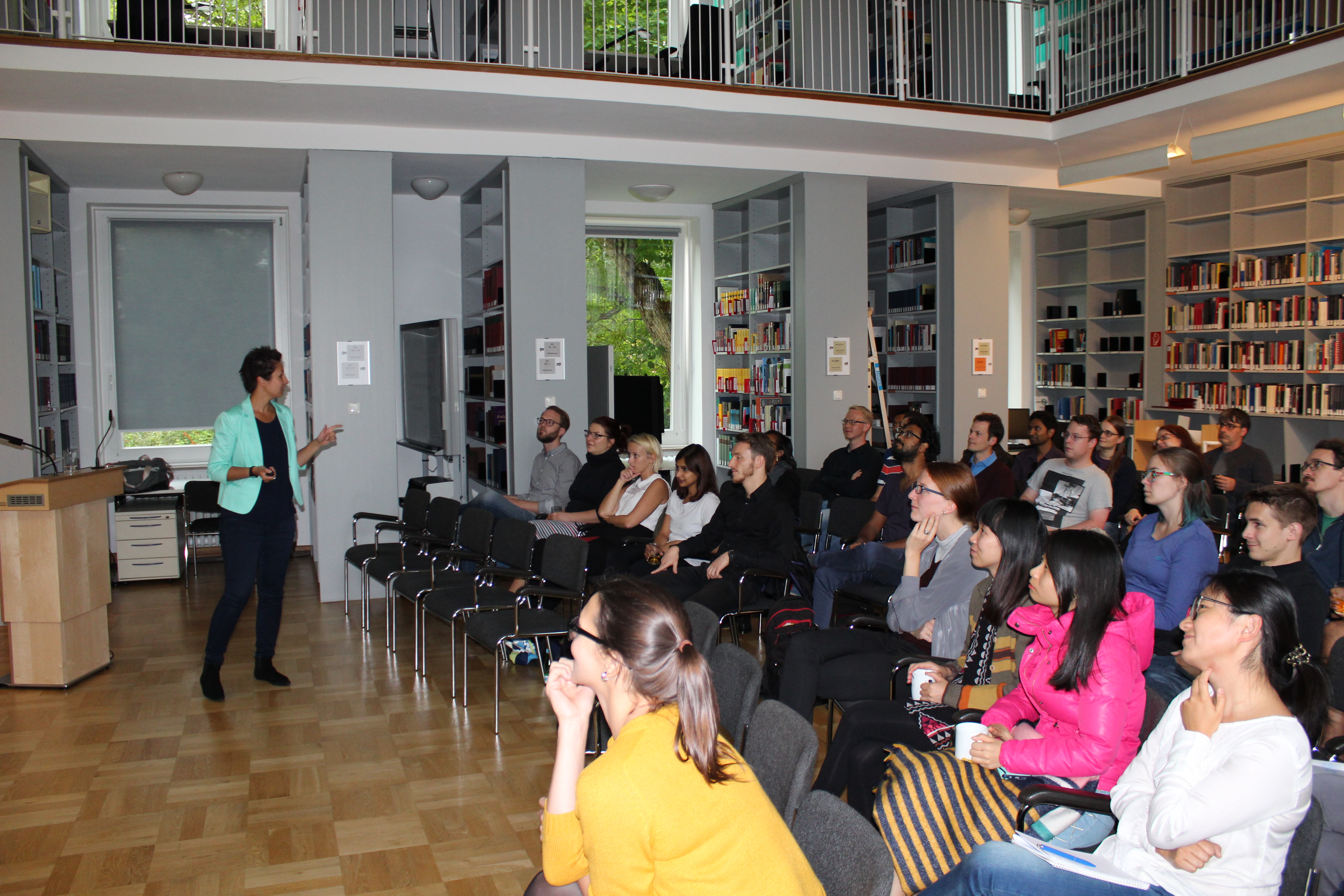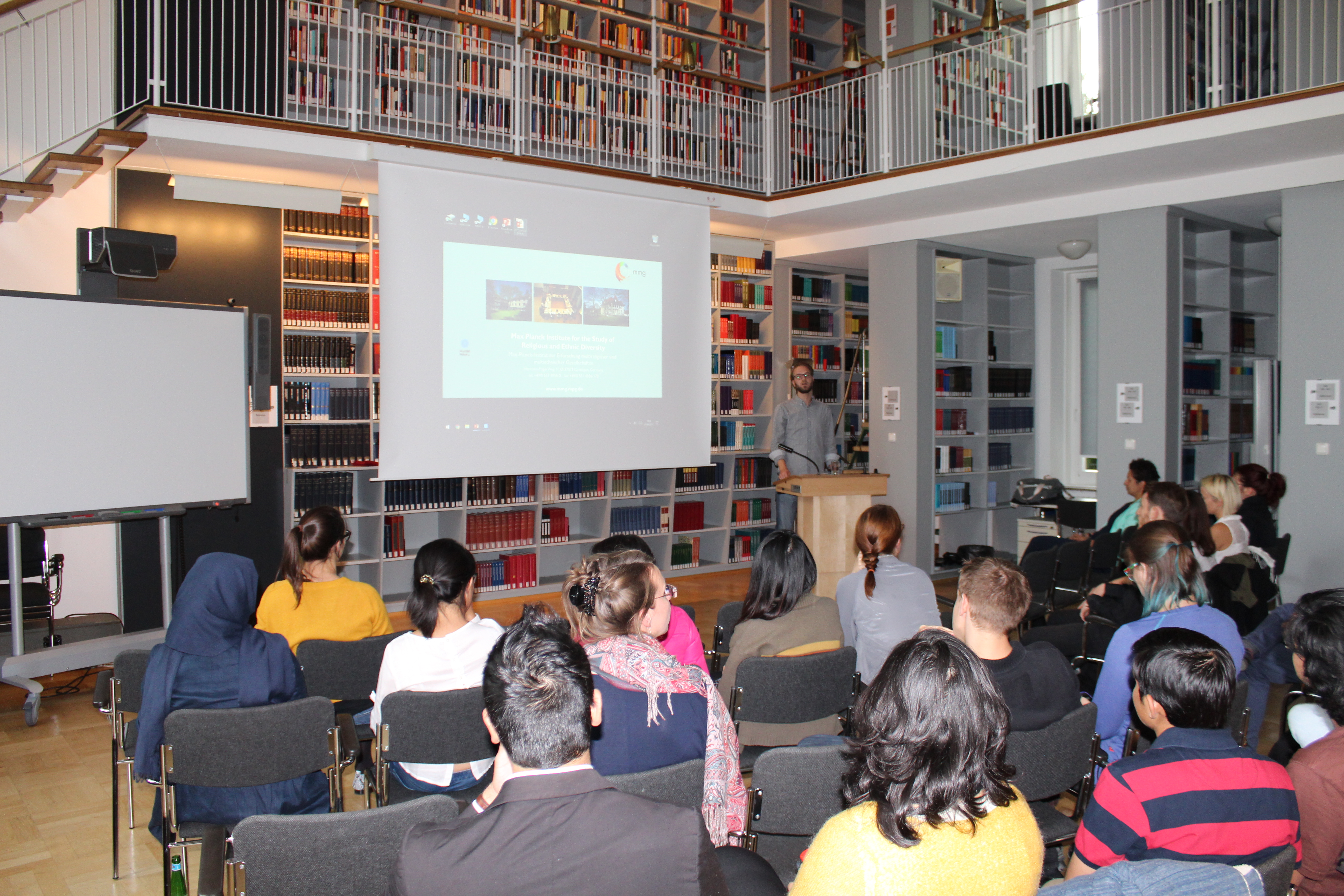Archive
-
Revolutionary Publication Marketplace: the bloxberg Blockchain will Power OpenSci.net
We are thrilled to announce its partnership with the project OpenSci.net, an innovative open-access publication marketplace for scientific content that connects researchers, publishers, and readers through a secure and transparent DLT-based platform. The innovative open-access publication marketplace for scientific content will use the bloxberg blockchain, initiated by MPDL, to provide a decentralized and tamper-proof system for managing the publication process.
This will allow for greater transparency and accountability while giving authors and readers greater control over the publishing process. Through their collaboration, OpenSci.net and bloxberg aim to make the benefits of blockchain technology accessible to the scientific community and develop new standards in scientific publishing services.
Read the press release here.More info:
-
The MPG Labfolder User Workshop 2023 is here!
We are organizing a Labfolder User Workshop on the 11-12 of May, 2023, at the Max Planck Institute of Molecular Cell Biology and Genetics.
Labfolder is an electronic laboratory notebook, becoming increasingly popular within the Max Planck Society, with users being spread across many different institutions and locations. Therefore, we are organizing a workshop for the key users of Labfolder within the Max Planck Society. The event is intended as a place to share and learn about people using Labfolder in their daily routines, offering you many opportunities to exchange, expand your knowledge and learn.
The primary target audience are those colleagues who use Labfolder in their daily work. The event is intended as a place to share and learn about people using Labfolder in their daily routines. Have you been working with Labfolder regularly for a longer time? Do you write your lab book with it? Do you use or interact with the REST API automatically or with scripts? Then this workshop offers you many opportunities to exchange, expand your knowledge and learn.
The workshop is not planned in a presentation-discussion mode. Instead, we would like to encourage conversation with each other. Therefore, we are not looking for presentations. In contrast, we have included a lot of time for discussion in the program. At the same time, such an event lives from active participation. To encourage this, we would like to introduce the various Labfolder solutions at Max Planck Institutes via short introductory lightning talks. For this, we are looking for colleagues who can briefly present their local Labfolder applications in two minutes. Do you want to contribute with a 2-minute talk? Please let us know via rdm [at] mpdl [dot] mpg [dot] de.Weitere Infos:
RDM Website
Labfolder Workshop Program
Register here
-
The Max Planck Digital Library joins the 1st NEB Digital Talk Series webinar
Exciting news! On February 14, 2023, the Max Planck Digital Library (MPDL) joined the first NEB Digital Talk Series webinar hosted by digiNEB, where they showcased the bloxberg blockchain and its potential use in the creative industries.
bloxberg is a secure global blockchain that was founded by the MPDL, which allows scientists to certify raw research data on a blockchain, ensuring the protection of intellectual property and the authenticity of data. It is also part of the broad Research Service Catalog of the MPDL, which includes various tools and services for scientists of the Max Planck Society. The MPDL is constantly working to optimize the research process of MPG scientists by providing reliable and effective digital solutions. Blockchain technology has been proven to be a helpful tool for this purpose.
The NEB Digital Talk Series was organized by the New European Bauhaus (NEB), a creative and transdisciplinary initiative that aims to connect the European Green Deal to people's daily lives and living spaces. The event highlighted bloxberg's already existing use cases in registering ideas and promoting fair attribution, encouraging greater sharing of ideas in co-creation processes. For more information on using bloxberg for intellectual property in the creative and cultural environment, visit the bloxberg website.

-
[NEWS] We are celebrating the Edmonth!
This month we are celebrating the EdMONTH – your opportunity to get to know Edmond – our research data repository for Max Planck researchers – a little better. It is the place to store completed datasets of research data with open access. Edmond serves for the publication of research data from all disciplines and offers scientists the ability to create citable research objects.
With Edmond, MPDL has allowed its users to create citable research objects with DOI without a usage fee or limitations while storing data within the Max Planck Society's infrastructure. Making daily work and the publication & citeability of research data easier and becoming a reliable service for many years.
Over 60 Max-Planck-Institutes uploading data, 199 327 uploaded files, and research data from all over the world show MPG scientists and employees' trust in Edmond. We are looking forward to many more years of open-access research data. We love data, we love Edmond!
More info:
Get to know Edmond here!
-
[NEWS] Software Management Plan (SMP) Template for the MPG now available!
A new template for creating software management plans (SMP) is now available on RDMO, making the usage of research software more sustainable.
Software and sustainability in this context are being discussed by many institutions worldwide. The MPDL has therefore made an SMP template available for the RDMO software accessible to the RDMO community with a CC0 waiver. With the software management plan template, scientific software is viewed through the lens of project management. A software management plan (SMP) can make the conception, implementation, and long-term availability significantly easier. The benefit of an SMP completed in advance is the support of the development of an emerging research software with documented information at hand. This clarifies which topics/ project stages still need to be solved or covered.
Sustainability, reproducibility, and reusability are keywords that are being used in the context of research software. In line with the open source idea, we hope for as many re-uses as possible and a concrete added value for others.
The template for a software management plan with its diverse help texts is aimed at scientists. Still, it can also be used by software, information, and infrastructure experts for consultation, project proposals, or needs analysis.
Max Planck scientists and their cooperation partners can now use the SMP template via the RDMO service of the MPDL. All others can use it with their own RDMO instance.
More info:
SMP template via the RDMO
If you would like to test the SMP, This email address is being protected from spambots. You need JavaScript enabled to view it..
-
[NEWS] We are celebrating five years of KEEPER!
This month we are happy to celebrate the fifth birthday of our tool KEEPER, allowing you to sync & share your project data while being properly archived in the Max Planck infrastructure. With KEEPER, MPDL has been providing its users with storage and many collaboration functionalities, making daily work and research easier and becoming a reliable and secure service for five years now. Over 4000 users, 145.3 TB used storage, and around 65.5 Million shared files show the impact KEEPER has made in the daily workflow of MPG scientist, employees, and their cooperation partners. We are looking forward to many more years of organized research data! Happy Birthday, you are a real KEEPER!
More info:
-
[NEWS] Max Planck Society and Brill reach agreement for open access books and chapters
The Max Planck Society and Brill have established a new collaboration on Open Access for books. Within this new agreement, Brill offers a discount on the book and chapter publication charge for all affiliates of the Max Planck Institutes. Coordinated by the Max Planck Digital Library, 50% of the book or chapter publication charge is funded centrally. The other 50% of the Open Access costs are funded by the applicable Max Planck Institute.
This extensive agreement covers not only monographs and edited volumes, but also individual chapters from Max Planck-affiliated authors to any Brill volume. All 86 Max Planck Institutes are eligible, and the agreement runs for three years, until October 2025.
Dr. Ralf Schimmer, Head of Information at the Max Planck Digital Library, comments: “With this agreement we respond to the articulated demands of our researchers and offer a new opportunity to publish their research results in Open Access. We acknowledge the commitment of Brill to finding pathways to more openness in the system and are very pleased to collaborate with this distinguished publisher.”
-
[NEWS] 5th bloxberg Summit
The fifth bloxberg summit took place as a hybrid conference in Protaras, Cyprus, from October 26-27. This time the annual Consortium meeting was organized for the fifth time in a row by the Max Planck Digital Library (MPDL) in collaboration with the University of Nicosia, one of the bloxberg founders. The meeting was hosted at the Sunrise Pearl Hotel by the University of Nicosia. At this bloxberg summit, the decision on founding the bloxberg Association for the Advancement of Science and Blockchain e.V. under German legislation was finalized. The Association has been established with an in-person signing ceremony by 13 founding members with eleven research organizations and two individual members. Please see the press release for more information on the summit.
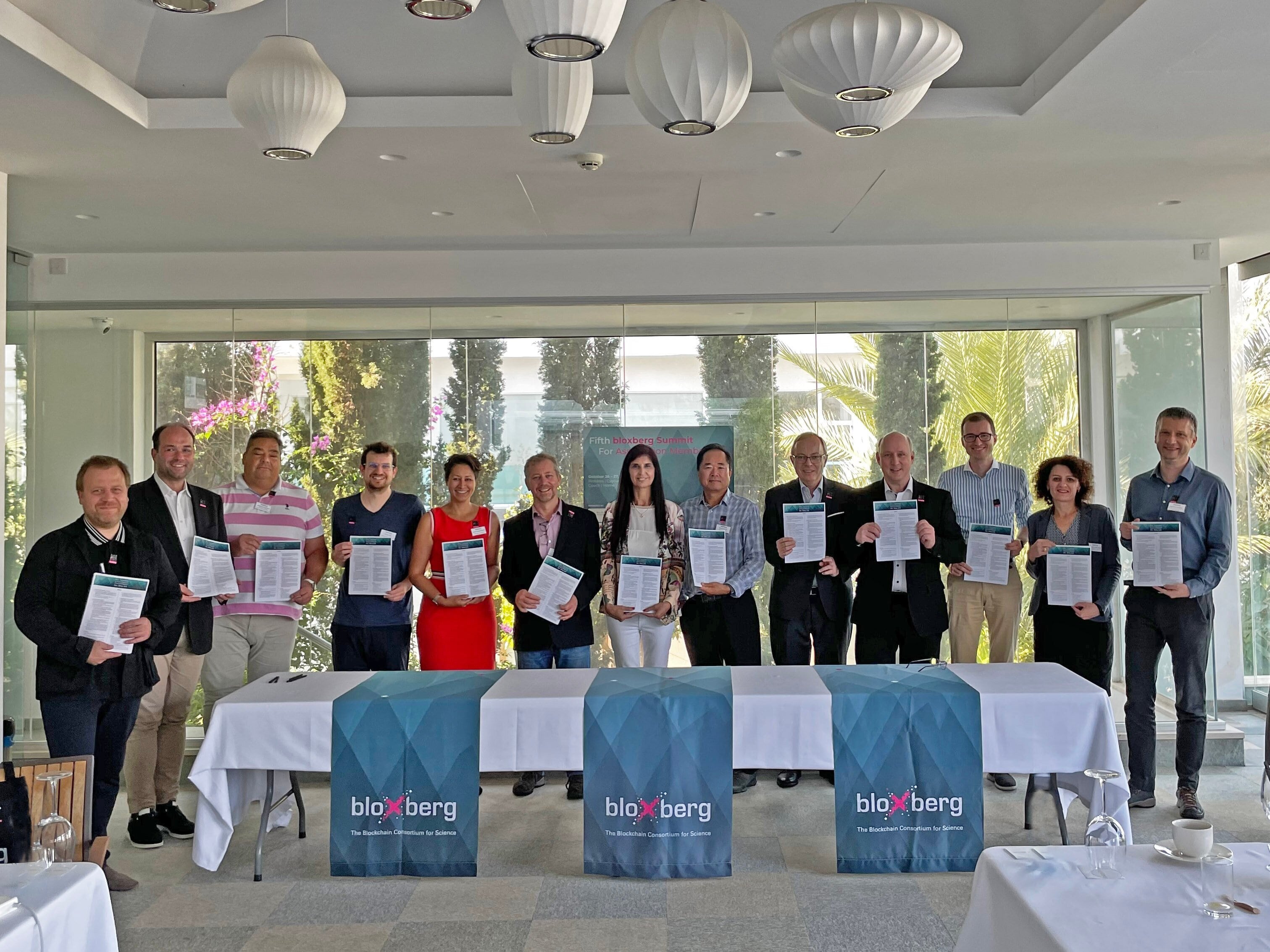
We are looking forward to the next summit! This time the summit is going to be hosted in Belgrade, Serbia, by the Faculty of Organizational Sciences of the University of Belgrade, a founding member of bloxberg.
For more info:
Press Release Fourth bloxberg Summit
-
[NEWS] New Poster on MPDL Services in Research Data Management
We are happy to present our new poster on MPDL research data management services. It gives an overview of the different offers and services Max Planck Digital Library provides to MPG colleagues and their collaboration partners. Eight services take a central spotlight, which are presented on the poster along with the service addresses and contacts. The poster is available online in print quality. If you are interested in a printed version for your Max Planck Institute, please contact our RDM support.
More info:
This email address is being protected from spambots. You need JavaScript enabled to view it.
-
[NEWS] New bloxberg Homepage!
As part and initiator of the bloxberg blockchain – the consortium for the advancement of science and blockchain – we are happy to announce the brand new bloxberg homepage!
With the consortium growing steadily for four years, the new bloxberg homepage is not only getting a fresh look and update but also many new features. Learn about bloxberg’s mission, check out all Consortium members on an interactive world map, discover the developer’s hut and get to know all scientific bloxberg applications that can help ease researchers' daily work.
More info:
bloxberg -
[NEWS] Service Catalog becomes Research Service Catalog!
The MPDL Service Catalog has received a new makeover. You can now browse the catalog in the following three categories: Publishing & Reading, Software & Data Services, and Strategic Services. In addition, new service tiles and new texts quickly provide information about how the service will support your daily workflow and research. The new structure simplifies navigation through MPDL's wide variety of services. The content ranges from scientific databases, and a wealth of open access publication services, to blockchain for your science. The new Research Service Catalog is available now! Discover the right service for your research here.
If you can't find what you are looking for or have any questions, feel free s, feel free to contact us.
More info:
-
[NEWS] Minerva Messenger Upgrade with Brand New Features!
Our Minerva Messenger aims to provide a great user experience, so the newest server upgrade comes with new functionalities such as voice calling and screen sharing. These share functions make communication in channels more accessible and efficient – with a click of a button, you can join up to three participants in a voice call.
Another available feature is Insights, offering an overview of the most important activities within your Minerva Messenger workspace. Additionally, a message formatting toolbar has been implemented, allowing you to change text appearance, react with emojis and add hyperlinks. Collapsed reply threads to keep your conversations organized are finally available.
The upgrade also fixed minor security level bugs and functionality placements.More Info:
Minerva Messenger Upgrade Details
-
[NEWS] RDMO-Service: Horizon Europe DMP template available
Data management is becoming increasingly important for third-party funding applications. Particularly at the European level, requirements for this are increasing. To support this, the MPDL service RDMO for MPG provides a questionnaire on data management for Horizon Europe.
This catalog can be used to organize data management for Horizon Europe projects and ERC grants. For example, it can be used to create data management plans (DMPs). Also, collaborative work can be done on data-specific project management.
More info:
For further questions or onboarding services, please contact our This email address is being protected from spambots. You need JavaScript enabled to view it..
-
New Preview Features for Edmond
Edmond now offers new preview features for different file formats. All file types, without any restriction, can be published with Edmond, the Open Data Repository for the Max Planck Society. In order to view the content of individual files more quickly, different previews are now available directly on Edmond’s user interface.
With the brand new ZIP previewer, Edmond now automatically displays the folder structure including files of a ZIP archive. At the same time, individual files can also be downloaded from the ZIP archive, so that it is no longer necessary to download the entire ZIP file. This gives users a quicker insight into the published research data.
Furthermore, Edmond now also supports the preview of several individual file formats in the browser. This preview applies especially to various text and image formats, pdf files but also audiovisual formats (MP3 & MP4).
More info:
For more information, please contact the Edmond support team via This email address is being protected from spambots. You need JavaScript enabled to view it.
-
Minerva Messenger now has an End-to-End Encryption (E2EE) Plugin
This new plugin enables end-to-end encryption (E2EE) in Minerva Messenger, aiming to authenticate, encrypt, and decrypt messages on the users’ configured devices.
Have you been looking for a safe way to communicate important matters, data, or research findings with your peers and external collaboration partners, without possibly disclosing information? Then this new plugin may be just the thing you were looking for. End-to-end encryption (E2EE) is a method of secure communication that keeps your data safe while it is being transferred from one end system or device to another.
The encrypted message can only be read on one platform after setting the current channel in encryption mode. For instance, if you start the E2EE on the Minerva Messenger, desktop client, you will not be able to read old encrypted messages via browser. Therefore, this end-to-end plugin could be sufficient for the needs of the lab work in which several team members may use a shared device. While chatting with the private key on your personal device, other users will not be able to read your old messages from a public laptop.
More info:
Minerva Messenger End-to-End Encryption (E2EE) Plugin
-
4th bloxberg Summit 2022
The fourth bloxberg Summit took place as a hybrid conference on Mai 3 – 4, 2022, at the LABS workspace at 90 High Holborn building in London. The bloxberg Summit is the annual meeting of the bloxberg Consortium, organized for the fourth time in a row by the MPDL and was hosted by UCL this time.
The bloxberg Consortium discussed four main proposals, which led to groundbreaking changes for the research network. These significant decisions revolved around its legal entity, governance model, tokenomics, and the architecture of the bloxberg infrastructure. Please see the press release for more information on the Summit.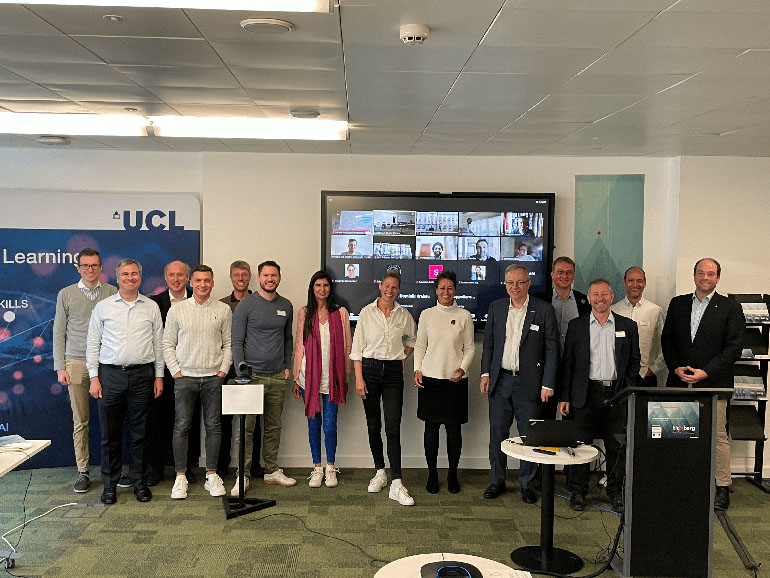
It has been an exceptional event with fruitful discussions in the center of London with over 25 research organizations from all over the world.
We are excited for the next Summit, which will be taking place October 26-27, 2022. This time the Summit is going to be hosted in Protaras, Cyprus, by the University of Nicosia, a founding member of bloxberg.
For more info:
Press Release Fourth bloxberg Summit
-
Max Planck Society signs open access book deal with Springer Nature
Springer Nature has signed its largest institutional OA book deal with the Max Planck Society through the Max Planck Digital Library (MPDL). The agreement covers all Springer Nature book imprints, across a broad range of disciplines, providing OA funding to affiliated authors from over 80 Max Planck Institutes.
The initial three-year agreement, live as of 1st January 2022, will enable authors from all 86 Max Planck Institutes to receive a discount on the standard Book Publishing Charge (BPC) to publish their book OA. MPDL will contribute central funding toward the coverage of the discounted BPC, lowering the costs for authors even further. The discount and funding will be available across all of the publisher's book imprints, under a CC BY licence, ensuring their work is freely accessible and discoverable to all communities across science, technology, medicine, the humanities and social sciences. They will be available to readers around the world via Springer Nature's content platform SpringerLink.
Ralf Schimmer, Head of Information at the MPDL, commented:
“In establishing this new agreement with Springer Nature, we further advance one of our core missions - to support our authors in the dissemination of their research beyond the restrictions of paywalls. By covering a significant share of the open access book publication costs, we are enabling more of our authors to publish their work openly, increasing readership and impact, in particular for those disciplines where books play a crucial role in the scholarly communication process.”
-
MPDL is supporting the Peer Community In (PCI) Initiative
Initiated at the request of several Max Planck institutes, the Max Planck Digital Library is supporting the platform „Peer Community in Registered Reports“ by making a one-time funding contribution of 5,000 Euro.
The Peer Community In (PCI) initiative is a non-profit, non-commercial platform that evaluates and recommends preprints in many scientific fields. The overarching aim of this researcher-run organization is to create specific communities of researchers reviewing and recommending, for free, unpublished preprints in their field.
Peer Community in Registered Reports (PCI RR) is a new community dedicated to receiving, reviewing, and recommending Registered Reports (RRs) across the full spectrum of STEM, medicine, the social sciences, and humanities.
RRs are a form of an empirical article in which study proposals are peer-reviewed and pre-accepted before research is undertaken. By deciding, which articles are published based on the question and proposed methods, RRs offer a remedy for a range of research biases, including publication bias and reporting bias.
More info:
-
MPDL is now supporting PsyArXiv
In answer to the request of several Max Planck institutes, Max Planck Digital Library now supports PsyArXiv with an annual payment of 1,000 USD over a period of three years. PsyArXiv is a non-commercial preprint server: Preprints and pre-registration are emerging topics within human research. PsyArXiv is a helpful and welcomed tool for a growing number of Max Planck researchers in the field of psychology.
You can find more info here.
-
Max Planck Society and IOP Publishing strike a new unlimited open access agreement
The Max Planck Society and IOP Publishing (IOPP) have established a new, unlimited, transformative open access (OA) agreement. The three-year agreement lifts all limitations for Max Planck authors, enabling them to publish all of their articles accepted for publication in IOPP’s full portfolio of 18 fully OA journals and 56 hybrid OA titles openly, with no author-facing article-processing charges.
Thanks to this agreement, the new research produced by the Society's scientists, selected and peer reviewed in IOPP journals will be freely and immediately accessible to scholars everywhere.
The new agreement makes it easier for Max Planck authors to publish open access, as the Max Planck Digital Library (MPDL) covers OA publishing fees centrally, omitting the need for authors to validate the availability of OA publishing funds. Additionally, the new agreement extends all previous reading rights to IOPP journal content.
Julian Wilson, Sales and Marketing Director at IOP Publishing says: “Continuing our valued partnership with the Max Plank Society supports our vision of making universal access to physics research a reality. We know that these agreements encourage greater uptake of OA publication. In fact, in 2021, 65% of research from authors affiliated with the Max Planck Society was published OA with us. We now have transformative agreements with 242 institutions in 14 countries and see them as key to accelerating the open access transition. We will continue to proactively secure these agreements in an inclusive and equitable way.”
Ralf Schimmer, Head of Information and Deputy Director of MPDL says: “IOPP is one of the ten most relevant publishers for Max Planck scientists, in terms of where they choose to publish their articles. Through this new agreement, the Max Planck Society can provide authors with the opportunity to reach the broadest possible readership for their articles and fully implement its OA2020 strategy, repurposing former subscription fees to support open access publishing, thereby contributing to the broader open access transition in scholarly communication.”
-
Open Access ermöglichen! Praxisleitfaden erschienen
Bibliotheken habe eine zentrale Rolle in der Open Access-Transformation. Vor allem die Erwerbungsabteilungen der wissenschaftlichen Bibliotheken stehen dabei vor einigen Herausforderungen: Budgets sollen so geplant werden, dass sie die Open Access-Publikationskosten der Einrichtung möglichst umfassend decken. Dabei gilt es abzuschätzen, wie sich das Publikationsaufkommen einer Einrichtung entwickelt und welche Kosten außerhalb der Bibliothek für das wissenschaftliche Publizieren anfallen. Verlage und Konsortien bieten neue Vertragsmodelle an, die bewertet werden müssen und viele der gewohnten Geschäftsgänge verändern sich oder müssen erst neu etabliert werden.
Im Nachgang zu einem Webinar zum Thema Transformation und Erwerbung, das die MPDL Services gGmbH in 2021 in der Reihe der DEAL Praxis-Webinare organisiert hatte, haben sich sechs interessierte Bibliothekar*innen aus unterschiedlichen Einrichtungen zusammengetan, um das vorhandene Fachwissen zum Thema zusammenzutragen und systematisch aufzuarbeiten. Die MPDL war mit Kai Geschuhn als eine der beiden Hauptautorinnen federführend an der Erarbeitung des 50 Seiten umfassenden Praxisleitfaden „Open Access ermöglichen“ beteiligt, der jetzt – natürlich Open Access unter einer CC-BY-Lizenz – veröffentlicht wurde. Das Autor*innen-Team möchte mit dem Leitfaden einen praxisorientierten Beitrag zur aktuellen Diskussion um die Open Access-Transformation liefern, die eigenen Erfahrungen mit Fachkolleg*innen teilen, und die Bibliotheksgemeinschaft dazu einladen, das gemeinsame Fachwissen kontinuierlich zu erweitern.
Link zur Veröffentlichung: https://doi.org/10.5281/zenodo.6090208
-
Minerva Messenger: New Features & New Knowledge Base
It’s that time again: our messaging service Minerva Messenger has new exciting features you shouldn’t miss!
Next to upgraded integrations, we are presenting you new features like Boards, which is a project management tool that will help you track and manage your work across teams. In addition, with Playbooks, we are happy to present you with a feature you can use for staying in command with integrated communication, collaboration, and status dashboards to manage your entire workflow lifecycle. Last but not least, we made some cosmetic changes: You can now adjust a new & improved user interface to your personal preference.Go here and check out our new Knowledge Base for more detailed information. You can learn more about Minerva Messenger or get in touch with us and submit your request via the new platform! We are looking forward to chatting with you on Minerva Messenger!
-
Major Edmond update: new interface, new features and many more!
Edmond – the Open Research Data Repository of the Max Planck Society has received a major update. We have replaced the old software solution of Edmond with the Dataverse software.
Dataverse is an open-source software, which is driven by a worldwide community and was initiated at Harvard University. Thanks to this new software and functions, Edmond has to offer many new features. Some of them include:
- A single-sign-on (SSO) for all Max Planck employees – available now
- There is no storage quota for users anymore
- The upload of huge single file sizes is possible
- A new user interface makes working with Edmond even more comfortable
- With DOI, ORCID, and ROR three different types of identifiers are available
- Other possibilities like versioning of datasets or private URLs to unpublished datasets help to address the different needs of the Max Planck community
Virtual Tutorials
To introduce the new features of Edmond we will offer two virtual tutorials of 30 minutes with a short presentation, a live demonstration, and questions & answers. Join us on:
March 23, 2022 | 2pm CET | Language: English
March 24, 2022 | 11am CET | Language: German
Register now on the RDM Website.
You can find more info on Edmond here.
-
Migrate your Slack Channels to Minerva Messenger & keep all your data!
MPG researchers now can migrate their Slack channels with all the existing data to Minerva Messenger.
Have you been looking for a safe way to communicate with your peers and external collaboration partners, but you want to keep all the info you already exchanged on Slack? Then become part of the Minerva Messenger community and join the already migrated teams. Minerva Messenger is provided & maintained by the MPDL, which means all your data is safe within our secure MPG infrastructure.Migrate your Slack channels now and keep all your existing data! You only need to follow a few steps for a customized migration. Our This email address is being protected from spambots. You need JavaScript enabled to view it. will take care of everything else. We are at your side - every step of the way!
For more info please check out our FAQ or just drop us an This email address is being protected from spambots. You need JavaScript enabled to view it.. We are looking forward to chatting with you on Minerva Messenger!
-
CfP for the Hybrid Workshop: Future Opportunities for Software in Research
We are very pleased to announce our Hybrid Workshop “Future Opportunities for Software in Research”, taking place on May 12-13, 2022. We are now welcoming workshop contributions on the topic of “Future Opportunities for Software in Research”. Software literacy has become a key competence for scientists across all disciplines. Scientists use software every day, and software development is becoming an increasingly important component of scientific productivity. However, the software needed for certain research projects can get highly complex and take up resources otherwise needed for core research. In the demanded professionalization of software development in research, specialized Research Software Engineers have emerged in recent years. With their help, researchers tackle the challenges in the areas of software and data, such as reproducibility, correctness, user-friendliness, performance, or maintenance.
Our two-day workshop provides new opportunities to learn about best practices in scientific software development, like:
- Seeing recent flagship projects in action.
- Discussing software licensing and intellectual property issues.
- Discovering new ways to make your software known and recognized.
Themes and types of contribution
We are looking for prime examples where software-enabled research (day 1) and working practices in research software engineering (day 2).
Who should submit?
We welcome submissions from any people who have an interesting take on research software development, especially:
- Researchers at any career stage who develop software for research purposes
- Software developers working in a research context, whatever their job title or field, maybe
- Those interested in advancing the understanding of how best to use and maintain research software, e.g. concerning openness, reproducibility, sustainability, scalability, or performance
- Organizations providing tools, platforms, or services that foster research software, such as IT infrastructure providers or computing and data centers.
The deadline for CfP submissions is February 28, 2022. Talks may have a length of 15-30 mins. + variable time for Q&A and discussion. If your talk is accepted, you will be notified about the talk length by the session chair.
We would like to cordially invite all interested scientists, research software engineers, IT and computing specialists, and individuals involved in creating, using, or otherwise dealing with research software in the Max Planck Society. We also welcome participants from other research institutions.
The workshop will be held in hybrid form, so you will be able to connect remotely or come to the Max Planck Institute for Evolutionary Biology in Plön.
Organization Team
Holger Dinkel (Max Planck Institute for Biological Cybernetics)
Conrad Droste (Max Planck Institute for Marine Microbiology)
Carsten Fortmann-Grote (Max Planck Institute for Evolutionary Biology)
Michael Franke (Max Planck Digital Library)
Maximilian Funk (General Headquarter of the Max Planck Society)
Yves Vincent Grossmann (Max Planck Digital Library)
Stephan Janosch (Max Planck Institute of Molecular Cell Biology and Genetics)
Sven Willner (Max Planck Institute for Meteorology)
You can reach the organizers via This email address is being protected from spambots. You need JavaScript enabled to view it..
You can find info about the event is on the website.
-
Minerva Messenger Plugin Release & Update January 2022
We are happy to inform you about the newest update of our messaging service – Minerva Messenger. The Minerva Messenger (based on Mattermost) brings all MPG communication together, making it searchable, accessible & easy to use – anywhere. That is why we are constantly keen on providing you with new updates and ensuring all functionalities are working well.
The Minerva Messenger January 2022 update entails the following integrations and upgrades:
- GitLab Plugin Release
Accessing your GWDG GitLab account from inside Minerva Messenger is possible now. With this plugin, you can receive updates on GWDG GitLab repositories and manage the issues directly in Minerva Messenger. - BigBlueButton (GWDG Meet integration) upgrade to v4.3.0
Improved join meeting UX and optimized the UI in dark theme. Added max length limit on the external user name. Fixed a bug where meetings with no recording were polled forever. Now only the creator of the meeting can end the conference. - Server upgrade to v5.37.5
Fixed the issue that OpenID redirect did not work when hosting Mattermost on a subdirectory. Fixed the issue that v5.37 reported an incorrect mmctl version.
You can find additional details in our Minerva Messenger Knowledge Base.
If you are not on Minerva Messenger yet, check it out here.
- GitLab Plugin Release
-
LabCam is now KEEPER Cam!
With the new KEEPER Cam, you have the same functionalities as LabCam while storing all your taken photos directly on KEEPER, even offline. Do you find something interesting at a conference or exhibition? Do you want to record your experiment in real-time? Or you would like to share precious moments with your colleagues? This is made possible with KEEPER Cam, which is an office application to associate the camera of your mobile devices with your cloud storage space in your KEEPER account. In addition, the OCR function makes it easy to extract and store the full text from photos, which significantly improves your work efficiency.
An upgrade and new features will be available soon!
KEEPER Cam is available in Google Play, Apple App Store, and mPad Store – check it out and make your daily work routine easier!
-
New ESAC Resources on Transformative Agreements
Whether assessing a publisher “read and publish” offer for the first time or developing a strategic plan to navigate the open access transition, adapting to the evolution of scholarly publishing is a challenge that librarians everywhere are facing. Some first movers have already worked through the transition locally and are looking at what comes after their transformative agreement phase, while many others are just starting out on their transformation pathway.
To support the global library and library consortium community in this process, the ESAC Initiative - an initiative coordinated by the Max Planck Digital Library - has introduced three incredibly rich and authoritative resources, fruit of dedicated efforts by members the international ESAC community that have accumulated first-hand experience and deep knowledge of the strategic and operational aspects of negotiating and implementing transformative and central open access publishing agreements.
Read more here.
ABOUT THE ESAC INITIATIVE
ESAC is coordinated by the Max Planck Digital Library, in consultation an international advisory group comprised of library and consortium leaders with deep knowledge of the operational aspects of negotiating and implementing transformative and central open access publishing agreements with scholarly publishers. The ESAC community includes library practitioners who collaborate to produce open resources and who exchange experiences and insights via mentorship, dedicated working groups and other activities focusing on open access author and library workflows, data gathering and analytics, agreement terms, and stakeholder engagement.
-
New Service Alert: RDMO for MPG!
We are pleased to announce a new service: RDMO for MPG – a tool to support the planning, implementation, and organization of research data management. The Research Data Management Organizer (RDMO) is a free service of the Max Planck Digital Library for all MPG researchers and staff. The software allows its users to create and write data management plans for various funding organizations. It also provides the ability to cooperate on plans with a team, providing an overview of your project's work progress. The plans can be updated throughout the various project phases and forwarded to funding bodies. Additionally, RDMO grants an export of your project plans, creating snapshots of your work and assigning roles to project members.
The web-based software is open source (https://rdmorganiser.github.io).
For more info, visit the RDMO website.
If you have more questions check out the FAQ.
-
Max Planck Digital Library and Microbiology Society sign transformative agreement
The Microbiology Society and the Max Planck Digital Library (MPDL) have announced a three-year transformative agreement starting in 2022. The Publish and Read model will enable researchers of 86 Max Planck Institutes in Germany to publish any article accepted for publication in the journals of the Society open access, without having to pay Article Processing Charges (APCs). Through the agreement, MPDL will cover costs of open access publishing of articles in both fully open access and hybrid journals, allowing scientists to retain copyright and secure the broadest possible readership for their work.
Read the full press release
-
15th Berlin Open Access Conference: Adapt and Advance
Nearly 400 participants, representing hundreds of institutions and consortia from around the world, came together for the 15th Berlin Open Access Conference (B15) to discuss the ongoing transition of the scholarly publishing system to open access. Co-hosted by the University of California and the Open Access 2020 Initiative of the Max Planck Digital Library/Max Planck Society, the online conference placed particular emphasis on negotiation processes with publishers.
In the two and a half years since the community came together at B14, negotiations of transformative agreements have advanced worldwide, demonstrating growing support for leveraging publisher agreements to accelerate the industry’s transition to open access.
Under the theme “Adapt and Advance”, B15 shed light on the ways negotiating teams around the world are adapting to the changing landscape of scholarly publishing, refining their principles and objectives, and setting new agreement benchmarks, while also acknowledging different local contexts and current financial realities, and the need for greater transparency and sustainability in these transitional frameworks.
The conference took place from 28 September to 1 October 2021. Further details, recordings and reports of the 15th Berlin Open Access Conference are now available.
-
Anniversary of the Cooperation between Labforward and the Max Planck Digital Library
The Max Planck Digital Library (MPDL) is happy to celebrate the fifth anniversary of its successful cooperation with Labforward!
In October 2016, the MPDL gained the then Berlin-based startup Labfolder, now known as Labforward GmbH, as a licensing partner. The product "Labfolder" is used as an Electronic Laboratory Notebook (ELN) and Laboratory Information System (LIMS) by more than 1,000 of the world's leading scientists of the Max Planck Society for their everyday work in the laboratory. The ELN supports them in carrying out their research quickly and in a structured manner and documenting the results following good scientific practice.
Labfolder has been made available by the MPDL to all scientists of the Max Planck Society for their daily work, and it helps scientists from different sections in their daily research work in large part of the 86 Max Planck Institutes.
We are pleased to extend the central licensing for "Labfolder" to continue making the service available to the Max Planck Society researchers. The MPDL is thankful for the fruitful cooperation and looks forward to the following years of mutual growth.
More Info:
Labforward
Labfolder for Max Planck Researchers -
bloxberg Summit 2021
The bloxberg Summit 2021 took place as a hybrid conference on September 29 – October 1, 2021, at the MPG’s Harnack House in Berlin, as well as online. The bloxberg Summit is the annual meeting of the bloxberg Consortium. It has been organized by the MPDL for the third time in a row to discuss current topics and decide the further proceedings of the bloxberg initiative.
The third Summit focused on building Consortium Synergies and deepen cooperation between all participating parties from over 40 different universities worldwide. The Summit emphasized discussions and consisted of presentations of the current bloxberg Use Cases, Applications, and bloxberg Tech. It featured talks by Consortium members from Fraunhofer FIT, University College London (UCL), Karlsruhe Institute of Technology (KIT), and the MPDL. You can find details on the talks here.
During the Summit, the Iron Throne Voting also took place – a voting deciding who is going to be the primary organizing/administrative entity of the bloxberg Consortium. By a majority of votes, the Max Planck Society has been elected for Iron Throne for a third consecutive year.
Since it was such an inspiring event, we are already looking forward to the next bloxberg Summit, which will take place in May 2022. The goal of this Summit will be to conclude the individual projects of the working groups and decisions on the future of bloxberg.
More info:
bloxberg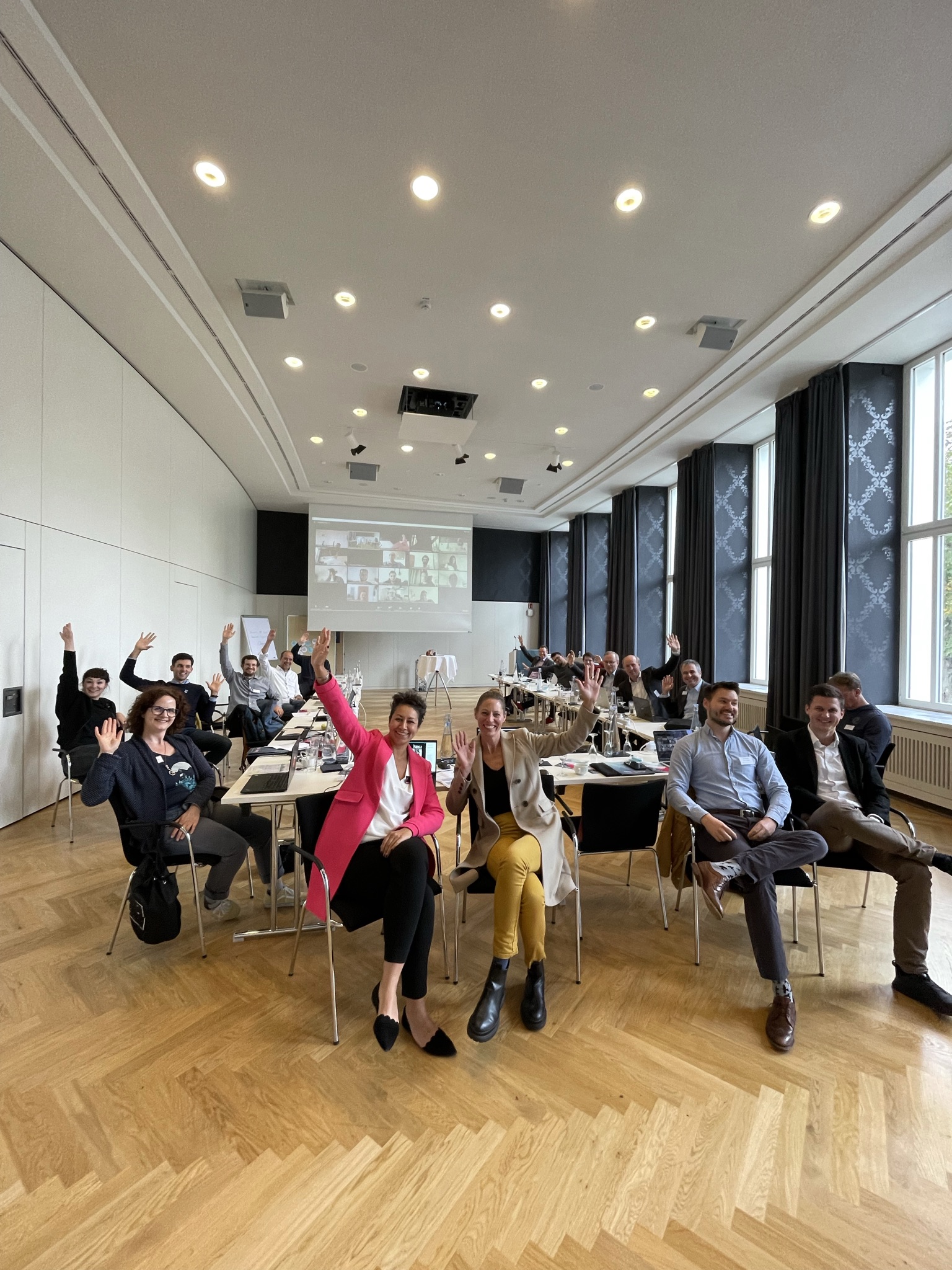
-
Software Licensing at your fingertips!
We are delighted to announce that we licensed several software solutions for your everyday need at the lab and office! Also, for a better overview, we created different categories that will help researchers find the right tool they need for their daily work.
Check out our three new categories & find the right software for you.
For more info on our Software Licensing Service, visit our Software Licensing Service Website*.
*only within MPG IP-range
-
Survey Results on the Usage of Electronic Laboratory Notebooks in the MPG 2021
The Electronic Laboratory Notebook (ELN) has become a multi-functional data system that can import and export data, notes, and observations from other devices. Therefore, ELNs are also seen in the context of good research practice, and the demands on ELN systems are thus widely distributed. There are many requirements, ranging from simple use in everyday laboratory work to data processing, provision, and long-term archiving. ELNs are intended to make day-to-day research work easier; therefore, it is essential to not solely focus on the technical solutions but to consider the scientists’ needs. Thus, the MPDL conducted a survey on the usage of Electronic Laboratory Notebooks in the Max Planck Society.
The survey was announced in February 2021 via different MPG internal email lists and was accessible until 31st March 2021. The participation was limited to MPG employees. It consisted of 19 questions, including 15 multiple-choice questions and four free text questions.
The results of this ELN Survey are now available online! If you want to know more about the conducted survey and the outcome, check out the following links to access the ELN Survey Summary:
Key Findings of the ELN Survey here.
ELN Survey Summary online via MPG.PuRe (limited to MPG IP range).
The chart data are available via the Edmond repository.
The survey results will also be presented at the workshop about "Living with Electronic Laboratory Notebooks" on 20th and 21st September 2021.
-
KEEPER Summer Release
KEEPER is always keen on keeping your data safe, even during your summer break! While doing that, our KEEPER team prepared something new for you to support you and your research even better. We want to present to you the KEEPER Summer Release 2021. This update entails:
Improved file certification via bloxberg, which includes added library certification (up to 1000 files at once), added entries for certified files under “Library Details”, storing the certified file version and the certificates & an added option to add metadata.
New interactive metadata form – no more manual editing of the archive-metadata.md file. This new form allows you to create your Cared Data Certificate easily, add metadata to your on demand archive & add metadata to your bloxberg file certification.
Reworked and redesigned project catalog, allowing you to explore all libraries with metadata within Keeper, only accessible by MPG users.
& many more! For a detailed description of what this release has in store for you, click here.
-
New Talk Series: Open Science in Practice
Open Science practices become more and more a part of researchers‘ lives.
MPDL presents a virtual series of pertinent talks to provide Max Planck colleagues with the latest information on Open Science best practices, tools, platforms, and regulations.
We invited speakers from diverse fields to present their Open Science related projects, experiences or initiatives.
Our aim is to provide the audience with a broad range of topics coming from Open Science related fields like
- Open Access -Public access to research outcome in the form of publications
- Open Research Data - A free access to research data
- Linked Open Data - Access to and cross-linking of public data stocks
- Open Review - The quest for alternative solutions to the traditional review processes provided by journal publishers, in order to improve transparency in this field
- Open Source - The development and usage of Open Source software for research activity
- Citizen Science - The involvement of amateur or non-professional scientists in the research process
- Open Education - The endeavour to a broad access to learning and training – far beyond the existing options provided by the traditional education system
- Pre-Registration/Registered Reports - Submission and peer review of manuscripts, project plans and hypothesis
If you are interested in connecting with MPG wide colleagues, inspiring discussions and upskilling talks we invite you to join our 45 minute sessions starting on Wednesday June 30 at 1:00 pm (CEST).
The first talk will be about
Recent developments in the EC policy on Open Science
by Alea López de San Román, European Commission´s Directorate for Research and Innovation
Dial-in: https://zoom.us/j/94125328264 (Passcode: osip)
All information surrounding the Talk Series can be found here:
Newsletter containing information on the talks:
This email address is being protected from spambots. You need JavaScript enabled to view it.
Reach out to the MPDL Open Science Team
This email address is being protected from spambots. You need JavaScript enabled to view it.
-
MPG City Week 2021 - we say Thank You!
We want to thank everyone who joined us on the ride through our first MPG City Week, which took place June 7-10. The whole MPG Family got the chance to network, find tools & ways to improve their work and research or get an overall orientation on our beloved MPG City.
We had more than 110 City Guides on our tour through 89 slots in which we explored various MPG facilities, networks, and services. The fabulous talks were followed by thoughtful feedback, and we are very grateful for each of you participating in our journey – over 1000 MPG Family members in total!We hope you enjoyed the journey!
-
Cooperation between MPDL and Wolfram®
The Max Planck Digital Library (MPDL) is pleased to announce a collaboration with Wolfram Blockchain Labs (WBL): with guidance from the MPDL, Wolfram® has developed a first application integrating Wolfram Language and IPFS. The integration between WBL's distributed ledger technology (DLT) platform and the open-source protocols of InterPlanetary File System (IPFS) and Filecoin is a step toward decentralized storage and analytics applications.
The implementation represents an extension of bloxberg's Certify & Verify service with a decentralized storage option. These provide researchers who do not have access to dedicated storage solutions via IPFS the ability to store the data and metadata which is associated with the data hashes stored on the bloxberg Blockchain.
The expansion of the service is another crucial step in enhancing the user experience of blockchain-based services, allowing more users to benefit from the unique features of blockchain technology in academia.
Wolfram is also using the integration with IPFS and Filecoin to develop features and use cases that can be integrated into decentralized applications by researchers.Learn more on how to use Wolfram Language.
More Info:
Wolfram Blockchain Labs
bloxberg -
New LabCam Release
The brand new LabCam app with exciting features has arrived! Now, all your photos taken with LabCam are automatically uploaded to KEEPER. Also, the OCR function makes it easy to extract and store the full text from photos, which significantly improves your work efficiency.
LabCam is available in Google Play and the Apple App Store – check it out and make your daily work routine easier!

-
Cooperation between Leibniz University Hannover & MPDL: Colony Counter App
We are pleased to announce a cooperation between the Institute of Technical Chemistry (TCI) of the Leibniz University Hannover and the MPDL with the shared mission of developing and distributing a service app to make lab work easier and more efficient. The mutual goal is to further develop a Colony Counter App and provide its open-source availability for a wider network of Max Planck Scientists. The Colony Counter App is a tool, which allows taking and scanning pictures of bacterial colonies, by the inbuilt camera of the smartphone or tablet. Thanks to an image-processing algorithm, providing digital picture analysis, the app counts and determines the amount of captured colonies, enabling lab work to be more efficient and precise. The algorithm has been developed by Dr. Daniel Marquard, Dr. Patrick Lindner, M.Sc. Ferdinand Lange, Prof. Sascha Beutel and Prof. Thomas Scheper from the TCI.
The app will be further developed and improved for usage and distributed by the MPDL Team.
We are looking forward to this cooperation!
-
New DEAL Operations website for Projekt DEAL for librarians, researchers and administrators
The new DEAL Operations website, managed by MPDL Services GmbH, provides librarians, researchers and administrators with information and practical support to successfully implement the transformative agreements negotiated by Projekt DEAL.
Read the full announcement here
-
KEEPER & OnlyOffice: a perfect match – an experience report
The MPDL is always striving to provide services that are top quality in the smallest details. MPDL’s Sync and Share tool KEEPER makes no exception and one focus of it is the collaborative writing tool. After conducting tests for various document-editing systems, KEEPER has just received a new and improved Office service: OnlyOffice!
This includes better compatibility with Microsoft Office, enhanced collaboration with tracking, review, comments, and more! KEEPER-users have the possibility to work directly on Office files in the browser - independently of your operating system and device. You can also work with your colleagues on the same document at the same time, while also tracking changes, chatting, commenting, and reviewing. There's also the possibility to work with non-KEEPER users, making it the perfect place to collaborate or to work on a file alone, but seamlessly with multiple devices.MPDL’s KEEPER team even wrote a whole experience report about it! If you’re interested in the whole procedure, go here & learn more about the challenges, the alternatives, bugs, and the overall happy end!
-
New Read & Publish open access agreement between the Max Planck Digital Library and The Company of Biologists
A three-year Read & Publish open access agreement has been reached between the Max Planck Digital Library and The Company of Biologists.
This new cost-neutral transformative agreement - which runs from 1 January 2021 to 31 December 2023 - ensures that corresponding authors at Max Planck Society’s 86 Institutes benefit from immediate open access publication of their research articles in The Company of Biologists’ hybrid subscription journals - Development, Journal of Cell Science and Journal of Experimental Biology - with no author-facing publishing charges.
In addition, this landmark agreement enables corresponding authors at Max Planck Institutes to publish research articles without charge in The Company of Biologists’ fully open access journals - Disease Models & Mechanisms and Biology Open.
Unlimited access to the full journal archives dating back to 1853 is also available.
“We are very pleased to implement this new agreement with The Company of Biologists, and salute their willingness to test new economic models that are repurposing previous subscription fees to facilitate a sustainable and cost-neutral transition of their journals to an open access publishing model,” says Ralf Schimmer, Head of Information Provision at the Max Planck Digital Library. "This agreement marks a further, significant step in the Max Planck Society’s strategy to enable open dissemination of research, in line with the principles of the OA2020 Initiative and the Berlin Declaration on Open Access.”
Read the full press release here.
More info:
Information for Max Planck authors
OA2020 Initiative -
New multi-year Read & Publish agreement between Max Planck Digital Library and Mary Ann Liebert, Inc.
The Max Planck Digital Library and Mary Ann Liebert, Inc., publishers have entered into a three-year Read and Publish agreement. Covering all Mary Ann Leibert, Inc. journals previously subscribed, the transformative agreement covers the cost for open access publishing of all articles by corresponding authors affiliated with the Max Planck Society, eliminating APCs (Article Processing Charges) for authors. In addition, researchers at all Max Planck Institutes will have full access to licensed Mary Ann Liebert, Inc. journal content.
“We are delighted to partner with Mary Ann Liebert, Inc. on this new agreement that enables the broadest possible readership and impact for the research of the Max Planck Society. By repurposing former subscription funds to support open access publishing in the journals valued by our scientists, the agreement aligns with the principles of the Open Access 2020 Initiative and takes a further step toward the open and innovative scholarly communication system envisioned in the Berlin Declaration on Open Access.” said Ralf Schimmer, Head of Information Provision at the Max Planck Digital Library.
Read the full press release here
About Mary Ann Liebert, Inc., publishers
Mary Ann Liebert, Inc., publishers is a leading independent publisher known worldwide for its establishment of authoritative peer-reviewed journals, books, and trade publications in cutting-edge fields such as biotechnology and regenerative medicine, biomedical research, medicine and surgery, public health research and policy, technology and engineering, law and policy, environmental research and policy, and other specialized disciplines. The company publishes over 90 peer-reviewed journals, leading trade magazines, and specialized newsletters, in addition to society membership management and conferences.More info
Information for Max Planck authors
OA2020 Initiative -
Max Planck Society and Rockefeller University Press enter “Read-and-Publish” transformative agreement
The Max Planck Digital Library has signed an unlimited “read-and-publish” transformative agreement with Rockefeller University Press (RUP) on behalf of the Max Planck Society. The agreement covers open access publishing of articles in RUP’s three hybrid journals: Journal of Cell Biology (JCB), Journal of Experimental Medicine (JEM) and Journal of General Physiology (JGP).
Under the agreement, which runs from January 1, 2021 to December 31, 2022, articles by corresponding authors affiliated with Max Planck Institutes will be published immediate open access under a CC-BY license and directly deposited in PubMed Central (PMC). The transformative agreement repurposes former subscription funds to cover all open access publishing fees for authors, and there is no limit to the number of articles that may be published under the terms of the agreement. Max Planck Institutes also receive unlimited access to RUP’s journals.
“The opportunity to publish their research articles openly in highly selective journals, such as the Journal of Cell Biology, provides a great benefit to our researchers and contributes to the advancement of science. We are very pleased to have reached this new transformative agreement with Rockefeller University Press, marking a further step in the Max Planck Society’s strategy to enable open dissemination of research, in line with the principles of the OA2020 Initiative and the Berlin Declaration on Open Access.” said Ralf Schimmer, Head of Information Provision at the MPDL.
Read the press release here.
About Rockefeller University Press
Rockefeller University Press (RUP) is committed to quality and integrity in scientific publishing. We use the latest technologies and carry out rigorous peer review, applying the highest standards of novelty, mechanistic insight, data integrity, and general interest to fulfil our mission of publishing excellent science. RUP publishes Journal of Cell Biology (JCB), Journal of Experimental Medicine (JEM), and Journal of General Physiology (JGP) and co-publishes Life Science Alliance (LSA). RUP’s nonprofit journals were established by the research community, and editorial decisions and policies continue to be driven by scientists who actively contribute to their fields, appreciate the value of peer review, and desire a better publication experience for all. Based in New York City, RUP is a department of The Rockefeller University, a leading biomedical research university dedicated to conducting innovative, high-quality research to improve the understanding of life for the benefit of humanity.
More info:
Rockefeller University Press Open Access Agreement 2021-2022 - Information for authors
OA2020 Initiative -
Max Planck Digital Library and Portland Press sign Read & Publish deal enabling unlimited open access in the Biochemical Society’s journals
The Max Planck Society has signed-up to the Biochemical Society and Portland Press’ pilot Read & Publish transformative deal. This provides Max Planck researchers with unlimited open access (OA) publishing and ‘read’ access across the entire journal portfolio.
This Read & Publish agreement guarantees all corresponding authors affiliated with the 86 Max Planck Institutes worldwide with OA publishing of their articles in Portland Press journals by default and at no additional author-facing charges.
The three-year deal, 2021-2023, repurposes former library subscription funds to support open access publishing, instead, ensuring a move away from the traditional subscription model towards a sustainable publishing model based on open dissemination of research.
Portland Press publishes seven journals covering different areas within molecular biology and the life sciences; two are fully open access (OA) titles and there are five hybrid journals where content is usually published behind a paywall, with authors either choosing to pay an article publishing charge to have their work published OA or benefitting from default, charge-free OA publishing where their institution has signed up to a Read & Publish pilot.
In the words of Dr Ralf Schimmer, Head of Information Provision at the Max Planck Digital Library, “Through their commitment and thoughtful strategy, the Biochemical Society is paving the way for learned societies toward a sustainable and irreversible transition of scholarly publishing to open access. We are delighted to implement this new agreement in full alignment with the Max Planck Society’s open access transformation strategy and the OA2020 Initiative, for the benefit of our research community and scientists everywhere.”
Read the full press release here.
More info:
Portland Press Open Access Agreement 2021-2023 - Information for authors
Portland Press Open Scholarship Portal
OA2020 Initiative
-
4. FDM-Workshop 2021: Registierung ist geöffnet und CfP verlängert (2)


Die Registrierung für den Workshop „Kompetenz Forschungsdatenmanagement in der MPG“ am 5. und 6. Mai 2021 ist nun geöffnet ist. Sie finden das Registrierungsformular hier: https://fdm-workshop.mpdl.mpg.de/registrierung-2021/.
Vielleicht haben Sie sogar Interesse, sich an diesem Workshop zu beteiligten? Unseren Call for Participation verlängern wir bis zum 31. Januar 2021. Bei Fragen zögern Sie bitte nicht This email address is being protected from spambots. You need JavaScript enabled to view it..
Der digitale Workshop wird von der Max Planck Digital Library organisiert. Er findet am 5. und 6. Mai 2021 statt und behandelt das Thema Forschungsdatenmanagement und Kompetenzbildung. Die Veranstaltung richtet sich an alle MPG-Kolleg_innen (Wissenschaft, Verwaltung, Bibliothek, IT, Wissenschaftsmanagement et al.). Über zwei halbe Tage finden Diskussionen, Trainings, Best-Practise-Kurzvorträge usw. per Zoom statt, um die verschiedenen Fragen und Interessen in diesem Themenfeld gemeinsam zu diskutieren. Weitere Information sowie das detaillierte Programm folgen unter https://fdm-workshop.mpdl.mpg.de kontinuierlich.
-
Max Planck Society and The Royal Society enter new transformative agreement
The Max Planck Digital Library and The Royal Society have signed a pilot agreement to enable open access publishing across the entire publisher's journal portfolio.
The Publish and Read agreement builds on the foundations of the central agreement that already covers publishing for Max Planck Society authors in the fully open access journals Open Biology and Royal Society Open Science.
This new 3-year agreement comes into effect in January 2021 and ensures that articles by Max Planck researchers accepted for publication in any Royal Society journal will be made open access and the relative publishing fees will be covered by the Max Planck Digital Library. Max Planck researchers also gain full access to the complete Royal Society journal portfolio, from its first publications in 1665 to date, significantly increasing their access to scientific papers in all disciplines.
Read the full press release here.
-
New Information Platform on Research Data Management
We are very happy to announce that our new Information Platform on Research Data Management has now gone live. You can reach it at https://rdm.mpdl.mpg.de. There you will find a lot of useful information on research data management in English, including Data Management Plans, repository selection, and available MPG services.
The website is structured into the three phases before, during, and after research. Here we map many aspects of RDM and have made them comprehensible for you. We will continuously expand this information page in the near future. If you have any specific requests or suggestions, please let us know.
And of course, this also applies, if you have specific questions or need general support on the subject of research data management. For this, please contact our RDM support: This email address is being protected from spambots. You need JavaScript enabled to view it..
-
New bloxberg members: The Ss. Cyril and Methodius University, The Knowledge Media Institute & The Chair for Software Engineering for Business Information Systems
We are very happy to announce the three newest bloxberg members: The Ss. Cyril and Methodius University, the Knowledge Media Institute at The Open University, and The Chair for Software Engineering for Business Information Systems (sebis) at the Technical University of Munich.
The Ss. Cyril and Methodius University in Skopje is the first state University in the Republic of North Macedonia, founded in 1949, initially with three faculties. The University develops study programs in all scientific fields – natural sciences and mathematics, technical and technological sciences, medical and health sciences, social sciences, humanities, and arts. The Faculty of Computer Science and Engineering (FCSE) is the result of merging the two largest institutions of informatics and computer technologies in North Macedonia: the Institute of Informatics at the Faculty of Natural Sciences and Mathematics and the Institute of Computer Technics and Informatics at the Faculty of Electrical Engineering and Information Technologies. The FCSE fosters international cooperation in terms of teaching, research, and mobility of students within the curriculum mobility program, Erasmus+ and other international cooperation agreements. FCSE realizes intensive scientific cooperation with more than 250 Universities, companies, and institutions from Europe and around the world – more than 100 projects funded by various programs (FP6, FP7, Horizon 2020, NATO, US Naval Research, and bilateral projects with other countries).
Besides all possible computer science and engineering research fields, blockchain is one of FCSE’s recent research areas with special interest lying in its interconnection with other technologies and systems. Starting from undergraduate level, FSCE provides blockchain courses in their curricula, while on MSc and Ph.D. level they offer specialized studies that provide interdisciplinary research covering Machine Learning, Data Science, IoT, Bioinformatics, etc. “As a part of the bloxberg consortium, we are very happy to support and share bloxberg’s vision on applying decentralized services for scientific and research purposes using a modern blockchain infrastructure. Our colleagues and students strive to develop different applications over the bloxberg infrastructure” says Slobodan Kalajdziski, Professor at FCSE.

The Knowledge Media Institute (KMi) is a multidisciplinary R&D lab based in the STEM Faculty of The Open University (OU) in the United Kingdom. OU is the leading university for flexible, innovative teaching and world-leading research in the UK and in 157 countries worldwide. KMi has been at the forefront of innovation for the past 25 years. They lead in a number of areas, including Semantic Technologies, Educational Media, Social Media Analysis, Big Data, Blockchain, Smart Cities, IoT, and others.
The OU established the Open Blockchain research area in 2015, led by KMi, to investigate how blockchains can be used within higher education and corporate training and also the relationship between semantics, big data, and blockchains. Within the learning area, there are a number of scenarios where radical improvements may occur including: embedding micro certification within blockchains; the development of educational currencies to support the crowdsourced accreditation of ‘soft skills’ such as collaboration, communication, and leadership by peers; and new disruptive models for teaching and learning where intermediary layers are removed resulting in dramatically reduced costs and increased openness. Interoperability between blockchains and the automation of a number of tasks associated with the development of blockchain applications (DApps) through semantic technologies is a second focus.KMi’s OpenBlockchain team has accumulated a wealth of knowledge and experience and a testbed architecture to support investigations in the use of blockchain in almost any scenario imaginable and has extensive experience working with the Ethereum blockchain. In May 2020 they unveiled a prototype mobile app that certifies COVID-19 immunity test results using blockchain and stores certificates in a Solid Pod. KMi’s Director, Professor John Domingue, said, “KMi is delighted to join the bloxberg consortium and to share our expertise to realize our joint vision for applied decentralized blockchain services“.

The Chair for Software Engineering for Business Information Systems (sebis) is one of the 25 chairs of the Informatics Faculty at the Technical University of Munich and is held by Professor Florian Matthes since its establishment in 2002. The chair contributes to the informatics and business informatics education at the Ph.D., master, and bachelor levels.
Blockchain-Based Systems Engineering is one of sebis' research areas since 2016 with particular interest focusing on institutional use cases, data analytics, and identity management in collaboration with multiple other universities and research institutions. In 2018, it established a Master's course called "Blockchain-based Systems Engineering", which over 600 students regularly attend.
More info:
The Ss. Cyril and Methodius University
Knowledge Media Institute @ The Open University
The Chair for Software Engineering for Business Information Systems (sebis) @ Technical University of Munich
-
Integration of Wolfram Blockchain Labs’ distributed ledger technology platform on the bloxberg blockchain
We are happy to announce the integration between Wolfram Blockchain Labs’ (WBL) distributed ledger technology [DLT] platform and the bloxberg infrastructure. This means that the bloxberg blockchain is now fully integrated into the Wolfram Language (WL).
WBL has developed a suite of functions in Wolfram Language that provide straightforward reading and writing capabilities for different blockchains. These functions also provide a powerful environment for users to create custom analytical tools. With this, all Max Planck researches are able to leverage bloxberg to confirm the certification of research data all within the Wolfram Language computational notebook interface, by accessing the new functionality, which is available in e.g. Mathematica.Wolfram Mathematica is one of several calculation applications that are provided by the MPDL’s Software Licensing Service (available within MPG IP-range).
Read the full press release here.
More Info:
Wolfram Blockchain Labs
bloxberg -
bloxberg is part of the European Commission's #DLT4Good Scanning & Report
We are happy to announce that the global blockchain innitiative bloxberg has been included in the latest #DLT4Good report “Scanning the European Ecosystem of Distributed Ledger Technologies for Social and Public Good” of the European Commission. The #DLT4Good report is complementary to the information that can be found in the #DLT4Good Scanning tool. The report’s aim is to explore the current situation of Distributed Ledger Technologies (DLTs), such as blockchains. The scanning and the report are comparing 131 DLT-projects worldwide.
More Info:
-
Open Access publishing in Nature - a new milestone in the transformation of scholarly journal publishing
Thanks to a new framework agreement negotiated by the Max Planck Digital Library, scientists at participating German institutions will be able to publish their research articles accepted for publication in Nature and Nature Research journals openly for the first time ever.
With scientists affiliated with German institutions publishing nearly 400 new research articles a year in the high-impact and well-respected Nature and Nature Research journals, the new agreement is an unprecedented opportunity to increase the visibility and impact of the very best of German research.
Key features of the agreement:
- The terms of the agreement will initially be offered to current subscribers of Nature journals in Germany. A tiered pricing structure has been developed, taking into account previous Nature subscriptions and average annual publication volumes in Nature journals.
- The vast proportion of the fees paid by each institution will be reallocated to support open access publishing of articles by their affiliated researchers.
- At the same time, institutions will gain access to the entire portfolio of Nature Research and Nature Review journals, including to all new journals launched over the term of the agreement.
Information for German research institutions and librariesThe Nature framework agreement is offered on an opt-in basis and is complementary to, and independent of, the DEAL-Springer Nature agreement. Institutions that currently subscribe to Nature and Nature-branded journals will be contacted by the publisher in the next few days with detailed information on the offer and agreement terms.
The Max Planck Digital Library negotiated the framework agreement, but, institutions wishing to receive the services agreed in the framework agreement will sign bilateral agreements with Springer Nature.
Implementation of agreements, including invoicing and provision of access, will be carried out exclusively by Springer Nature. The Max Planck Digital Library will provided support in managing the Open Access publication rights of participating institutions for the duration of the contract.
The framework agreement between Springer Nature and the MPDL will be published shortly.
-
New MPDL service: the Minerva Messenger
Tired of 10 different communication tools? We are happy to provide you with a solution: The Minerva Messenger (based on Mattermost) brings all MPG communication together, making it searchable, accessible & easy to use – anywhere!
You can create your own chat-channels, communicate with team members, discuss current topics and share your data files. Also, you can invite external collaboration partners & use Zoom at any time. This innovative platform is provided & maintained by the MPDL, which means all your data is safe within our secure MPG infrastructure! Start messaging with your peers & become part of the awesome Minerva-Community!
More Info:
Minerva Messenger Clickable Mind Map
-
University of West Attica becomes a bloxberg Consortium Member
We are very happy about the newest addition to the bloxberg Consortium: The University of West Attica (UniWA) was founded as the result of merging two Technological Institutes of the country. UniWA currently has 5 Schools and 26 Departments, constituting the third biggest university in Greece in terms of enrolled students.
CoNSeRT (COmputer Networks & SErvices Research laboraTory) was established in 2018, initially as a research team, part of the Communications & Networks Lab of the Electrical & Electronics Engineering Department of the University of West Attica (UniWA). The achievements and success of the research team have led to its evolution to a research laboratory, established in April 2019. Its main objectives include research and teaching at both undergraduate and postgraduate levels, the establishment of appropriate infrastructures, participation in research programs, provision of services, and interconnecting with social, scientific, and productive organizations on subjects related to the research focus of the Lab.
Blockchain is one of CoNSeRT’s recent research areas with special interest lying with its interconnection with other technologies and systems, e.g., IoT (e.g., Decentralized Identifiers), Machine and Federated learning, and 5G infrastructures. "At the same time, everyone in CoNSeRT is extremely glad to support and share bloxberg’s vision on applying decentralized services for scientific and research purposes using a modern Blockchain infrastructure", says Dimitris Kogias, a senior researcher at CoNSeRT.

Learn more about:
-
New Open Access Hub SAIRA® by Fraunhofer on bloxberg Blockchain
The new Open Access Hub area on SAIRA®, developed by Fraunhofer FIT and Fraunhofer, enables fast and easy sharing and publishing of the latest research findings on COVID-19. To secure the authentication, ownership, and integrity of information the platform will be integrated with the bloxberg Blockchain.
The bloxberg consortium member Fraunhofer Society launched the SAIRA® Open Access Hub platform with the Fraunhofer Institute for Applied Information Technology FIT in cooperation with the Secretariat of the World Association of Industrial and Technological Research Organizations (WAITRO). This platform now enables fast and easy sharing and publishing of the latest research findings on COVID-19.The Open Access Hub gives everyone the opportunity to upload technologies and information that can help fight the pandemic, and make them publicly available.
The high-quality standards will be ensured by a panel of peer reviewers from WAITRO partner organizations and Fraunhofer. The panel checks every publication made on the platform before they go online.Furthermore, the Open Access Hub is going to be integrated with the bloxberg blockchain. Thus, in addition to the quality check mentioned above, the platform will be secured against manipulation and guarantee the authenticity and integrity of all content with a Blockchain infrastructure. Therefore, all submissions on the Open Access Hub can be proven authentic and unaltered.
More Info:
Press Release Fraunhofer Society
-
Max Planck Society and AIP Publishing sign multi-year Read and Publish agreement
The Max Planck Society and leading not-for-profit scholarly publisher in the physical sciences AIP Publishing have signed a new Read and Publish agreement.
As a result of this transformative agreement, articles by Max Planck Society-affiliated corresponding authors accepted for publication in any AIP Publishing-owned journal will be made open access immediately upon publication without any article processing charge (APC) being billed to the author. The cost for open access publishing services will, instead, be covered by the Max Planck Digital Library, as part of the Society’s strategy to redirect subscription investments to deliver open access publishing opportunities to its scientists in the journals most relevant to them, in line with the objectives of the global Open Access 2020 Initiative.
Prof. Dr. Klaus Blaum, Vice President of the Max Planck Society’s Scientific Council for Chemistry, Physics and Technology remarked, ‘‘By signing a transformative agreement with AIP Publishing, the Max Planck Society is enabling greater visibility, impact, and potential of German research, to serve the greater good of scholarship and society. Our scientists value AIP Publishing’s portfolio of high-quality journals as a channel to openly communicate the results of their research to peers and learners everywhere.”
In addition, researchers at all Max Planck institute will have access to the content in journals published by AIP Publishing (including those published on behalf of partners) from their first publications through 2020.
Further information for MPS authors about this agreement
-
Max Planck Society and American Physical Society sign pilot transformative agreement
COLLEGE PARK, MD, and MUNICH, GERMANY, JULY 7, 2020 — The American Physical Society (APS) and the Max Planck Gesellschaft (MPG) have finalized the terms of a strategic partnership that allows MPG authors to easily publish open access in all hybrid and gold Physical Review journals at no direct cost to authors. At the center of the collaboration is APS’s first “read and publish” pilot, covering the calendar year 2020, and building upon the long-standing relationship between APS and the Max Planck Digital Library (MPDL).
“This expansion of our valued partnership with the Max Planck Society is aligned with our mission to advance scientific discovery and research dissemination, and it reflects our organizations’ shared commitment to open science,” said APS Chief Executive Officer, Dr. Kate Kirby.
The collaboration initiated late last year, as APS and MPDL began working together on the development of new processes and systems required to support the pilot, and the resulting workflows have been fully functional since early 2020. Both organizations are committed to further collaboration on continuously improving this infrastructure to further support sustainable open access publishing. This will also allow APS to offer new open access publishing services more broadly, and thus continue to expand its role in supporting open science and the evolving needs of the broader scientific community.
Prof. Klaus Blaum, incoming Vice President of the Max Planck Society’s Scientific Council for Chemistry, Physics and Technology said, “The journals of APS are highly valued by our scientists and our peers globally, and this new agreement will enable the broadest possible readership for a significant portion of our peer-reviewed research, ultimately improving and accelerating the scientific process.”
“This new transformative agreement with APS marks an important development in our strategy to repurpose our subscription investments in order to deliver open access publishing opportunities to our authors while, at the same time, contributing to the broader transition of today’s scholarly journals to open access in line with objectives Open Access 2020 Initiative,” said Ralf Schimmer, Head of Information at the Max Planck Digital Library.
Both hybrid and fully open access peer-reviewed journals published by APS -- including highly-selective flagship titles such as Physical Review Letters and Physical Review X -- are covered under the read and publish pilot.
“The pilot is designed to deliver tremendous value to researchers by providing the opportunity to conveniently publish open access in the most-read and highest-cited peer-reviewed journals in physics and related disciplines, broadly trusted and valued by researchers around the world for more than 127 years,” said APS Publisher Dr. Matthew Salter.
To publish open access in these journals and make their articles immediately and freely available to readers without a subscription, authors are generally required to pay a fee. Under the new transformative agreement, the article publication charges (APCs) are covered by the institutional license fee, meaning that authors affiliated with any of 88 Max Planck institutes and research facilities can publish open access in the Physical Review journals without needing to spend time and resources on the invoicing and payment process. Upon publication their papers will be made immediately open access under a CC-BY license allowing broad access and reuse rights.
“The development of this partnership was motivated by our organizations’ mutual commitment to providing excellent service to our shared customers, the research communities,” said APS Associate Publisher Jeff Lewandowski. “By facilitating hassle-free open access publishing that allows MPG authors to maximize the visibility and impact of their research, and increasing the open access content available to users worldwide, together we are now serving those communities more effectively than ever before.”
The 2020 license also continues to provide MPG-affiliated readers access to the entire APS online library, including peer-reviewed research and review articles published from 1893 to the present. APS and MPG have also made significant progress towards developing a longer-term arrangement to extend this open access partnership beyond 2020 in a manner that is sustainable for both organizations and able to adapt to the evolving open science landscape.
The new partnership is the latest in a long series of innovations by APS in support of its goal to provide sustainable open access options for all researchers across the communities it serves. In the 1990s APS adopted policies supporting green open access through self-archiving, and also launched one of the first fully open access journals in physics. Since then it has continued to invest and innovate in open science through a number of initiatives, including: developing fully open access and hybrid journals to meet a diverse array of author needs; subsidizing open access publishing costs; supporting CHORUS as a founding member; and participating in the SCOAP3 initiative to facilitate convenient open access publishing for high-energy physics researchers.
About the Max Planck Society
The Max Planck Society for the Advancement of Science is an independent, non-profit research organization. Focusing on research fields that are particularly innovative, the 83 Max Planck Institutes conduct basic research in the service of the general public in the natural sciences, life sciences, social sciences, and the humanities. More than 15,000 studies by its researchers are published each year in internationally renowned scientific journals.
About the American Physical Society
The American Physical Society is a nonprofit membership organization working to advance and diffuse the knowledge of physics through its outstanding research journals, scientific meetings, and education, outreach, advocacy, and international activities. APS represents over 55,000 members, including physicists in academia, national laboratories, and industry in the United States and throughout the world. Society offices are located in College Park, Maryland (Headquarters), Ridge, New York, and Washington, DC.
-
Publish open access at Max Planck in over 8000 journals
Thanks to the growing number of agreements negotiated by the Max Planck Digital Library with many major publishers, Max Planck authors can publish their articles open access immediately and free of charge, increasing the visibility and impact of their work!
On our new Open Access Publishing Support site, you will be able to find all journals covered by these agreements.
When publishing an article in any of the listed journals, any costs for open access publishing are fully covered by the central agreements concluded by MPDL for all Max Planck authors.
Learn more about the Open Access publishing services offered to Max Planck Society authors here.
-
MPDL is Back in Office
We are happy to announce that the Max Planck Digital Library is introducing the idea of a gradual return to the office. On June 16th the MPDL welcomed back the first employees, while still taking all precautionary measures to ensure safety for all returning members of the staff. We are happy we could provide services while being out of office – a great thanks to everyone involved.

-
bloxberg Online Summit 2020
The bloxberg Summit 2020 took place online on May 28th and June 2nd. The summit is the yearly meeting of the bloxberg consortium, organized by the MPDL, where projects are being presented and the newest topics surrounding blockchain and science are discussed.
On the first day of the summit the third parties ARTiFACTS®, Decentralized Science, Ethernity HODL UG , and Wolfram Blockchain Labs presented their businesses and explained their affiliation to bloxberg. Topics like the integration of blockchain and cloud computing technologies, decentralized reputation systems for researchers, and functions providing reading and writing capabilities for different blockchains have been presented.On the second day of the summit, speakers from universities and institutions which are part of the consortium introduced their current projects. Institutions such as the University of Nicosia, the University of Geneva, the Hamburg University of Applied Science, the University of Applied Science Technikum Wien, and the MPDL presented their use cases. The University of Nicosia introduced the consortium to its DLT4ALL project, which has the goal to make blockchain and Distributed Ledger Technologies and their applications understandable. The MPDL spoke about its new project of Peer Review Aggregation on bloxberg, which aims to bring recognition to peer viewing efforts. A concept to foster reuse of research data using bloxberg has been a topic discussed by the Hamburg University of Applied Science. In addition, the possibilities for security that blockchains are providing have been presented: the University of Geneva explained the verification of diplomas based on a smart contract on bloxberg and the University of Applied Science Technikum Wien spoke out about electronic voting secured by the blockchain.
We would like to thank all participants and speakers. The bloxberg Summit 2020 was a complete success and inspired further discussions about blockchain and science! For more information on the individual projects visit the websites of the participating institutions.
More Info:
Hamburg University of Applied Science
University of Applied Science Technikum Wien
You can find more info about the third parties here.
-
Edmond update - repository growth and new features
Edmond, the now well-established open research data repository of the Max Planck Society, continues to grow steadily: the number of data collections increases on average weekly, recently almost daily. The number of Max Planck Institutes using Edmond also keeps increasing; currently there are 33 MPIs represented.
In mid-2019 we started to make a series of intensive improvements to our repository. This process has now been completed.
Changes include, for example, the linking of records to other sources, optimized data documentation (addition of further metadata fields) and improved search functions. It is now also possible to reserve a DOI for (as yet) unpublished data collections. The strong demand of the professional community for this possibility has accompanied us for quite some time now. This is all the more reason for us to be pleased to facilitate the excellent work of our scientists even more. We also increased the default disk quota per user to 10GB, more is always available This email address is being protected from spambots. You need JavaScript enabled to view it.Despite or even because of all the innovations: Edmond remains user-friendly as before.
For more on our work on Edmond, see here.
For guidance on collection metadata fields, see here.
-
bloxberg @ Aktionspapier des Blockchain Bundesverbands
Der Blockchain Bundesverband übergab am 11. März sein „Aktionspapier Blockchain“ an die Staatsministerin für Digitalisierung Dorothee Bär. Damit soll die Bundesregierung bei der konkreten Umsetzung von Anwendungen mit der Blockchain-Technologie unterstütz werden.
Im Bereich Forschung wird bloxberg, eine von der Max-Planck-Gesellschaft initiierte, globale Blockchain-Initiative, als einziges Projekt hervorgehoben. bloxberg wird als Proof-of-Concept für eine Blockchain in der Wissenschaftswelt empfohlen, auf der beispielsweise das BMBF oder die DFG projektgebundene Forschungsmitteltokens verteilen könnten.Mit dem Aktionspapier werden vom Präsidenten des Verbands, Florian Glatz, konkrete Forderungen an verschiedene Ministerien weitergeben. Anwesend waren u.a. Vertreter der Ministerien BMWi, BMJV, BMZ, BMWI, BMEL, BMBF, BMI und BMF.
Mehr Infos:
Pressemitteilung zum Blockchain Aktionspapier des Blockchain Bundesverbands
Aktionspapier des Blockchain Bundesverband e.V.
-
Third parties @ bloxberg Summit 2020
We are happy to announce that the bloxberg network is being used for many independent dApps and Apps. Since the bloxberg blockchain is open to everyone to built applications on top of, there has been a lot of so-called third parties running non-authority nodes and connecting them to the bloxberg network. Four of these third parties will be presenting at this year’s bloxberg summit which is taking place at the Harnack House in Berlin on March 2-4, 2020. The bloxberg summit is a conference of bloxberg consortium members, that is held to present and discuss current topics around the use of blockchain in a scientific context. The summit will be held by the MPDL this year.
The following parties will be presenting at the bloxberg summit 2020:
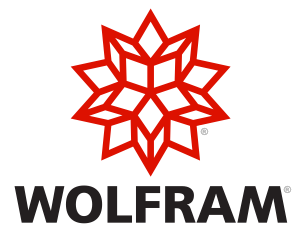
Wolfram Blockchain Labs (WBL) has developed a suite of functions in the Wolfram Language (WL) that provide straightforward reading and writing capabilities for different blockchains. These functions also provide a powerful environment for users to create custom analytical tools. In order for these services to work seamlessly, WBL hosts nodes from Bitcoin, Ethereum, ARK, and bloxberg in their high-performance cluster. This allows direct connections to blockchain nodes and smooth integration with the WL, for use either on the desktop (Mathematica) or cloud (Wolfram Cloud).

ARTiFACTS® is a platform designed to accelerate researcher recognition by securing the provenance of in-progress research outputs created by scientists and scholars and making these findings discoverable and citable among peers and colleagues. Transactions are registered on the blockchain; specifically, the bloxberg distributed ledger, using Smart Contracts to establish the proof-of-existence. The citation actions of scientists provide a permanent, valid, and immutable chain of record in real-time. Maintaining the provenance of research contributions and acknowledgments creates stronger incentives for scientists to share their work, enabling them to receive recognition for their contributions and security for their intellectual property. ARTiFACTS and bloxberg interoperability offer researchers control over when their works are shared and with whom, both pre-publication and upon publishing their findings.
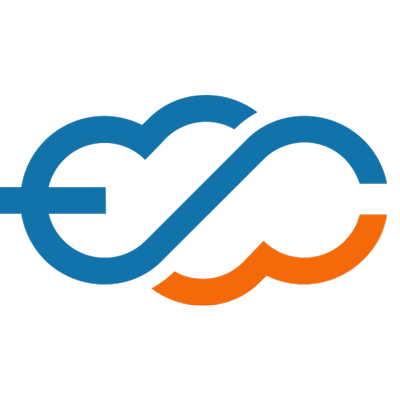
Ethernity HODL UG is a young German startup that is experimenting with integrating blockchain and cloud computing technologies, focusing on the information security aspect. This technology is specifically useful in the scientific field. For scientists involved in scientific computing, getting provable and reproducible results for research papers is perhaps one of the biggest challenges. The mission of this project is to make a platform available where they can run their scientific computing tasks and attain "Proof of Execution". Using bloxberg, the "Proof of Execution" certifies the execution specific scientific computing task. Later, the execution can be verified and validated against the blockchain, which aids in the reproducibility of research.
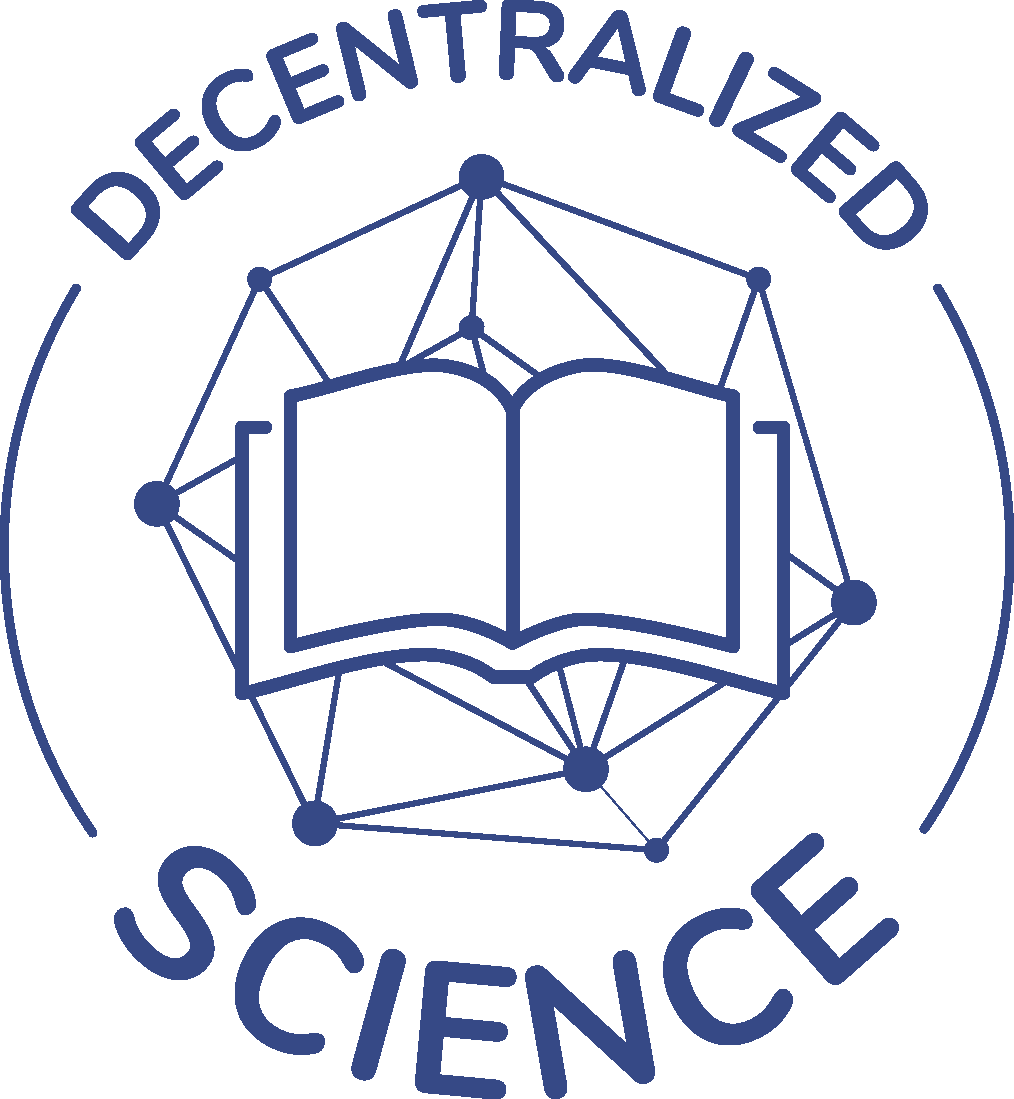
Decentralized Science promotes transparency in peer-reviewing using technologies such as blockchain and IPFS. Using their system, reviewers can openly share their review reports and get reputation and rewards. The practice of revealing the reviewers’ reports (either anonymous or signed) is not new and has been promoted for years because it can improve the quality and fairness of peer-reviewing. Decentralized Science offers services such as a tool to find the best and most reliable reviewers for a specific paper, and a reputation system for reviewers to increase the recognition of their invisible work while increasing the fairness, quality, and timelines of their review reports. Their technology is open and decentralized, and will always belong to the academic community. Join the network and help them promote an open and transparent future for peer-reviewing!
More Info: bloxberg
-
New KEEPER update
We are happy to announce our newest KEEPER update. So what’s new?
In addition to the promise to keep your data safe for at least 10 years, KEEPER has now a new Archiving-On-Demand function. This means, that KEEPER users only have to click a button to store their library on a dedicated and KEEPER independent system. It is possible to use this feature via KEEPER web for any library that is owned by the user. Just click the new "Archive"-button. The "Archive"-button can be found either under "My Libraries" or in the drop-down menu within a library.
With a correctly filled out archive-metadata.md file an additional archive will be created. KEEPER will take care of the whole archiving process. So go on – give your data a second home!For more info please visit the KEEPER Knowledge Base.
-
Springer Nature and Germany’s Projekt DEAL finalize world’s largest transformative open access agreement
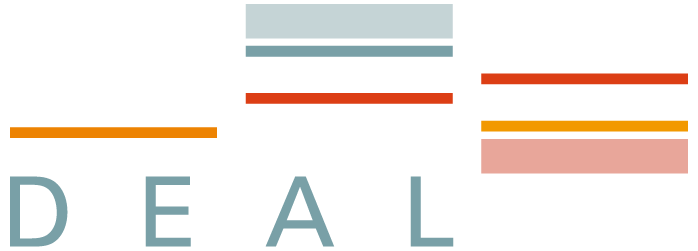
Following the Memorandum of Understanding (MOU) signed in August 2019, Springer Nature and MPDL Services GmbH on behalf of Projekt DEAL today announce that the formal contract for the world’s largest transformative Open Access agreement to date has now been signed. From January 1st 2020, the agreement provides Open Access publishing services to academic authors at 700+ German research institutions. Extensive access to Springer Nature’s journal portfolio will be granted to participating institutions. The agreement will be published in full text online in conjunction with the start of the sign-up process for German institutions in the second half of January.
Read the press release issued by the German Rectors’ Conference here.
-
3-month trial with Enago - 40% discount on manuscript editing
Enago provides scientific and academic editing services to researchers and helps them to get published.
Max Planck authors now receive 40% discount on Enago’s manuscript editing services. In order to benefit from the pilot agreement and to receive the discount, you need to enter the service through a dedicated landing page for Max Planck affiliated authors:
https://www.enago.com/inst/mpauthors/
Please note: There is no central payment for Enago services by MPDL, authors need to cover the remaining 60% themselves. Find out more about Enago's terms and conditions on the service's landing page.
[Update January 2020: Discount increase from 30% to 40%.]
-
ARTiFACTS Smart Contracts Now Processing on the Max Planck Society bloxberg Trusted Research Infrastructure
Scientists Benefit from ARTiFACTS and bloxberg Interoperability
Cambridge, Mass. USA and München, Germany –September 3, 2019 – ARTiFACTS and the Max Planck Digital Library (MPDL) announced today ARTiFACTS is the first partner organization now registering transactions on the bloxberg distributed ledger. Using Smart Contracts to establish the proof-of-existence and citation actions of scientists provides a permanent, valid, and immutable chain of record in real-time. Maintaining the provenance of research contributions and acknowledgments creates stronger incentives for scientists to share their work, enabling them to receive recognition for their contributions and security for their intellectual property. The interoperability of ARTiFACTS and bloxberg offers researchers control over when their works are shared and with whom, both pre-publication and upon publishing their findings.
It is universally recognized that sharing research findings earlier in the research process will accelerate discoveries. Working with the Max Planck Digital Library, a central unit of the Max Planck Society (MPS) that supports thousands of scientists in their publication and research data management efforts, both teams are collaborating to advance the effectiveness of blockchain-based solutions for improving scholarly research and communication.
“Enabling researchers to receive recognition for all of their scientific contributions in a secure, reliable and efficient way is our primary mission,” said ARTiFACTS President and Co-Founder, Dave Kochalko. “The ARTiFACTS team is proud to be providing innovative research solutions for the Max Planck community on this trusted infrastructure.”
“The progress from our collaboration with ARTiFACTS is gratifying,” said Sandra Vengadasalam, Head of the Digital Labs Department of the Max Planck Digital Library. “We are continuing to pursue innovation such as this which advances the communication of science and research conducted by our institutes.”
About ARTiFACTS
ARTiFACTS, creators of the world’s first blockchain-based collaboration and attribution platform for scholarly research, provides a user-friendly platform, purpose-built for academic and scientific research that leverages blockchain technology. Researchers can record a valid and immutable chain of records in real-time, from the earliest stages of research for all research artifacts, including citing/attribution transactions. ARTiFACTS Smart Contracts with customized bibliographic metadata enable performance of transactions made by researchers on the bloxberg trusted infrastructure. While today’s digital scholarship creates linkages among a narrowed subset of indexed publications long after discoveries are made, ARTiFACTS focuses on capturing and linking knowledge from its initial ideation throughout the research process to informal and formal dissemination. By using the ARTiFACTS platform, researchers will be able to immutably prove ownership and existence of work, expand access to their research artifacts, provide and receive real-time attribution for novel work and more comprehensively, and rapidly build and demonstrate their body of scholarly contributions.
To learn more, visit ARTiFACTS and follow them on Twitter @ARTiFACTS_ai!
About the Max Planck Society
The Max Planck Society conducts basic research in the natural sciences, life science, and humanities. The 84 Max Planck Institutes and 17 Max Planck Centers internationally focus on research fields that are innovative and address forward-looking scientific questions. The Max Planck Digital Library (MPDL) is a central unit of the Max Planck Society that supports scientists with a broad portfolio of services in the fields of information provision, publication support and research data management. With its Digital Labs department, MPDL ensures a constant pipeline of new technologies to provide innovative and sustainable services and tools for all Max Planck researchers.
To learn more, check out our website and follow us on Twitter @mpdl or Instagram @mpdldigitallabs!
-
The blockchain strategy of the German federal government: bloxberg as an example of the application of blockchain technology in science
The German federal government refers to the bloxberg-initiative of the Max Planck Society in their recently published strategy paper on blockchain. Here, bloxberg is mentioned as an example of how the blockchain technology can be used and applied in science. Amongst other things, it was announced that future cooperations regarding blockchain-applications will be supported by the federal government. With an increased funding, a significant rise in the amount of new and open forms of cooperation is expected.
More Information:
Blockchain Strategy of the German Federal Government
-
MPDL Services GmbH: Understanding has been reached with Springer Nature on world´s largest transformative open access agreement
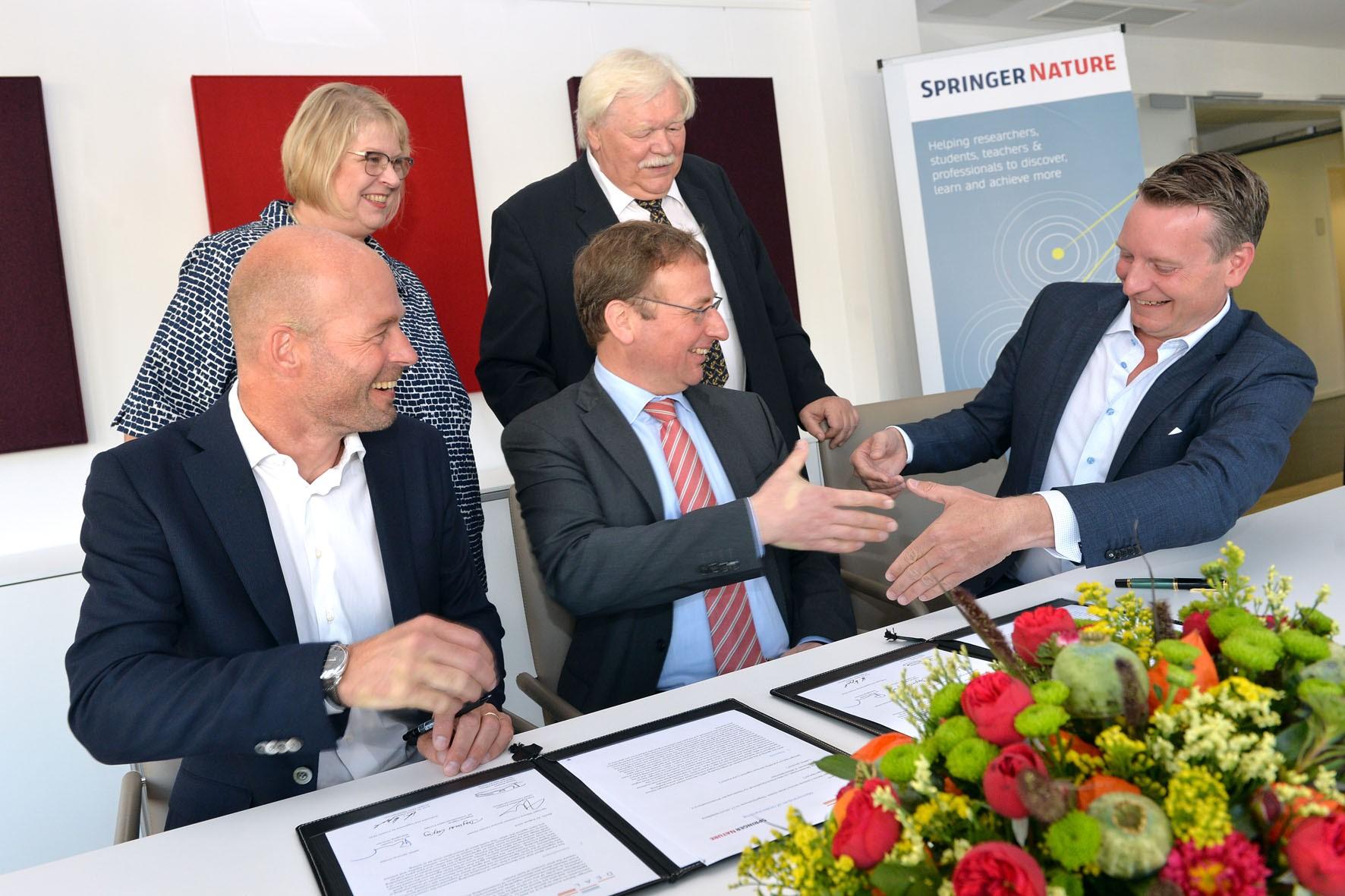
Photocredit: Bettina Ausserhofer
MPDL Services GmbH , on behalf of Project DEAL and Springer Nature, signed a Memorandum of Understanding (MoU) on 22.8.2019 in Berlin which defines the framework for the most comprehensive Open Access agreement worldwide. The previous German subscription expenses for Springer Nature journals will be systematically converted from 2020 onwards in order to make articles by authors from German research institutions freely available in Springer Nature journals. The MoU sets the scene for a transformative agreement which will include an open access gold component and a publish and read element. Around 13,000 contributions from German institutions will be published each year in over 600 open access journals and in 1,900 Springer Nature subscription journals. In addition, the model offers the academic community extensive read access to the scientific journals of Springer, Palgrave, Adis and Macmillan at the 700 or so eligible German scientific institutions. The final agreement is to be concluded and published before the end of this year.
-
New Edmond release: ORCID integration and additional metadata suggestions
Edmond, the Open Access Data Repository of the Max Planck Society, now provides the opportunity to include author ORCID iDs as well as general metadata for data collections. Thereby datasets can be linked to corresponding scientific articles and some context (geolocation, biological study object, chemical element/compound, temporal coverage) can be provided where applicable. This information can also be added to existing collections, or transferred from the description of a collection to new dedicated fields. For details, see here or This email address is being protected from spambots. You need JavaScript enabled to view it..
-
ARTiFACTS and Max Planck Society Partner to Expand Use of Blockchain Platform for Scholarly Communications
Scientists to Receive Recognition for their Research Contributions on Max Planck Digital Library Blockchain-Based Platform
Cambridge, Mass. USA/Munich, Germany - ARTiFACTS and the Max Planck Digital Library (MPDL) announced today a collaboration to investigate how blockchain technology can advance the way scientific data is handled. By providing the possibility to record a permanent, valid, and immutable chain of research data in real-time, the recognition of scholarly contributions by the MPS research community will be lifted to a new level. Working with the Max Planck Digital Library, a central unit of the Max Planck Society (MPS) that supports thousands of scientists in their publication and research data management efforts, both teams are collaborating to advance the effectiveness of blockchain-based solutions for improving scholarly research and communication.
It is universally recognized that sharing research findings earlier in the research process will accelerate discoveries. However, today’s scholarly communication process provides no system for sharing, discovering and attributing most scientific outputs. This delays the sharing of results, prevents scientists from receiving recognition in the form of citations to their contributions, impedes funding opportunities and career advancement.
In collaboration with MPDL, ARTiFACTS will develop blockchain smart contracts and decentralized applications (dAPPs) on the bloxberg Blockchain enabling MPG scientists to receive recognition for all of the research materials they create. “Scientists repeatedly tell us they seek a secure, reliable and efficient method of sharing research materials in ways that both protect their intellectual property and enable them to receive recognition in real-time for their contributions,” said ARTiFACTS President and Co-Founder, Dave Kochalko. “By providing ARTiFACTS services over the distributed ledger platform supported by the Max Planck Digital Library, we are pleased to advance the mission of this world class research organization.”
“This collaboration is an ideal fit with the forward-looking innovation our Digital Labs seeks to bring to the MPS research community,” said Sandra Vengadasalam, Head of the Digital Labs Department of the Max Planck Digital Library. “Backed by an experienced team delivering creative research information solutions, we look forward to working with ARTiFACTS and accelerating the velocity of MPS research.
About ARTiFACTS
ARTiFACTS, creators of the world’s first blockchain-based collaboration and attribution platform for scholarly research, provides a user-friendly platform, purpose built for academic and scientific research that leverages blockchain technology. Researchers can record a valid and immutable chain of records in real-time, from the earliest stages of research for all research artifacts, including citing/attribution transactions. While today’s digital scholarship merely creates linkages among an artificially narrowed subset of indexed publications long after discoveries are made, ARTiFACTS focuses on capturing and linking knowledge from its initial ideation throughout the research process to informal and formal dissemination. By using the ARTiFACTS platform, researchers will be able to immutably prove ownership and existence of novel work, expand access to their research artifacts, provide and receive real-time attribution for novel work and more comprehensively and rapidly build and demonstrate their body of scholarly contributions.
To learn more, visit us at artifacts.ai and follow us on Twitter @ARTiFACTS_ai.
About the Max Planck SocietyThe Max Planck Society conducts basic research in the natural sciences, life science, and humanities. The 84 Max Planck Institutes and 17 Max Planck Centers internationally focus on research fields that are innovative and address forward-looking scientific questions. The Max Planck Digital Library is a central service unit of the Max Planck Society dedicated to the strategic planning, development and operation of digital infrastructures necessary for providing Max Planck Institutes with scientific information, publication support and research data management services. With its Digital Labs department, MPDL ensures a constant pipeline of new technologies to provide innovative and sustainable services for all Max Planck researchers.
To learn more, visit us at https://www.mpdl.mpg.de/, and follow us on Twitter @mpdl and Instagram @mpdldigitallabs.
-
How to deal with no subscription DEAL
In their joint push to bring the advantages of an open digital environment to scholarly publishing, research organizations around the globe are facing long and sometimes tough negotiations with academic publishers which may lead to a situation in which journal subscriptions have to be cancelled. MPDL in collaboration with Max Planck's PhD net have put together an overview of the most valuable alternative access routes for scholarly articles.
Download flyer "How to deal with no subscription DEAL"
-
New Consortium members for bloxberg
We are very happy to announce the newest members of the bloxberg Consortium. Welcome KIT, Universidad Nacional de Colombia & University of Zurich!

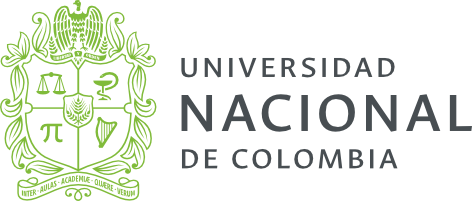

-
bloxberg publishes whitepaper
The MPDL is happy to announce that the bloxberg whitepaper is published.
Read more @ Newsroom of the Max Planck Society!
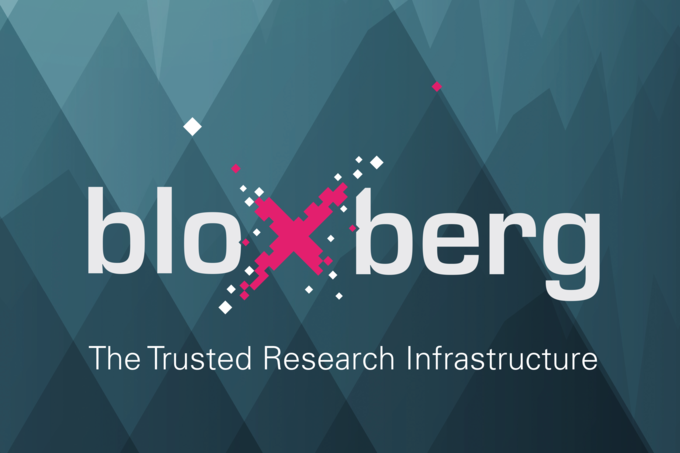
Get the whitepaper @ bloxberg!
-
Open Access Agreement with Cambridge University Press
Building on the ‘read and publish’ agreement coordinated by the Bavarian State Library (BSB) with financial support from the German Research Foundation (DFG), MPDL on behalf of the Max Planck Society has now entered in a new open access agreement with Cambridge University Press,
-
Transformative agreement with American Chemical Society (ACS)
With the beginning of the year 2019, American Chemical Society (ACS) and Max Planck Gesellschaft have entered in a new transformative agreement that provides researchers affiliated with Max Planck institutes the opportunity to disseminate immediately, under an open access license, 100 percent of their research articles upon acceptance and publication by a peer-reviewed ACS journal.
-
Looking back at the Open Science Days 2019
On February 5/6 the MPDL had invited to the fourth Open Science Days at Berlin’s Harnack House.
“Research Software” being this year’s focus topic of choice, a number of interested attendees from all over Europe and even overseas came together in the beautiful Goethe Auditorium.
And the subject really turned out to be the right decision. It became clear that today, Research Software is and certainly will remain one of the central aspects for the future development of research itself.
Compared to Open Access and even Open Research Data, a lot of basic questions are still unanswered – and several things are missing for a proper dealing with this topic in everyday research: Platforms, tools, workflows, standards, guidelines, rewarding systems, business models and much more.
This calls for urgent action by all parties concerned – a message also included in the magnificent keynote by Roberto Di Cosmo. Furthermore, Mr. Di Cosmo reported about the concept and the activities of France’s Software Heritage, which deals with the collection, long term preservation and sharing of software from various sources.
The conference talks included different concrete examples of Research Software like Picasso for DNA-PAINT, the robotic behavior orchestration software playful or GGIR, which is about processing raw data from movement sensors.
Besides that, we got to know about platforms like swMath which brings together software and publication data, or the impressive services AiiDA and Materials Cloud for the procession of raw data at Lausannes EPFL.
Initiatives presented at the conference were the Software Sustainability Institute and de-RSE, the German branch of an international network for Research Software Engineers. These are all about bringing the community together and supporting colleagues in their daily struggle with the reality of Research Software processes.
The MDPL team really enjoyed these one and a half days at Harnack House and we took a huge mass of new ideas, impressions and information with us.
Conference slides as well as some pictures are available at the OSD-Homepage.
-
bloxberg – The novel Blockchain Consortium for Science
Munich, February, 2019 – the Max Planck Digital Library is pleased to announce the new research project bloxberg: the first trusted research infrastructure
Twelve exclusively selected leading research organizations from ten different countries came together to form the global Blockchain Consortium for Science – bloxberg.
Sandra Vengadasalam and Friederike Kleinfercher from the Max Planck Society envisioned the first trusted research infrastructure by initiating the bloxberg summit to propel blockchain in science. The event took place from February 20th to the 22nd at the magnificent Ringberg Castle in the Bavarian Alps, close to Tegernsee.
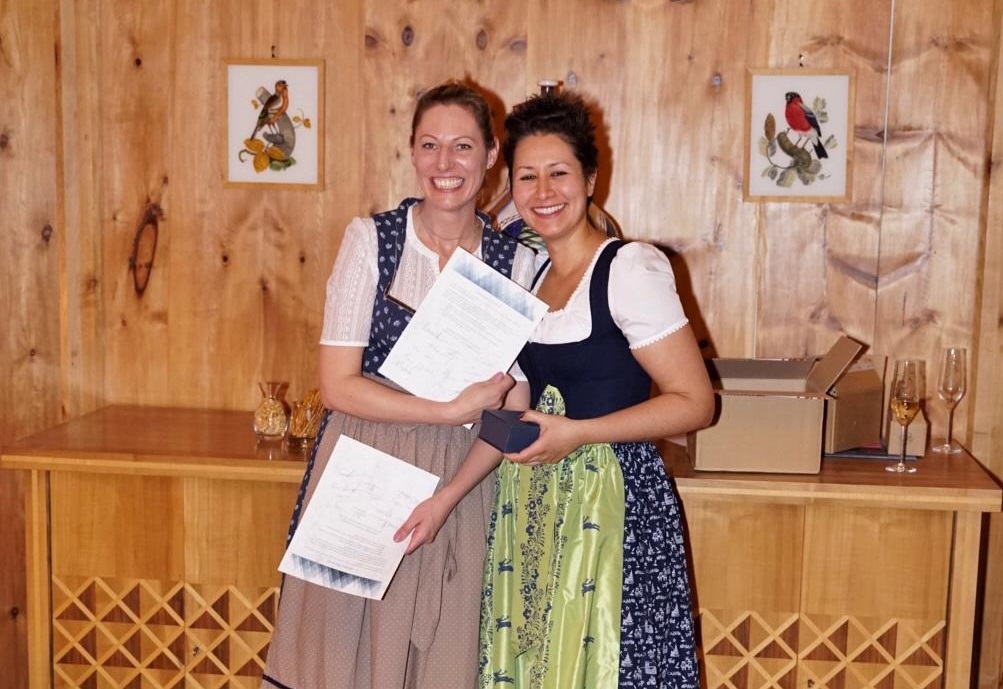
The two happy initiators after a successful signing ceremony. The bloxberg infrastructure is a secure global blockchain established by a consortium of leading research organizations – including Carnegie Mellon, UCL, ETH Library at ETH Zürich, Georgia Tech, IT University of Copenhagen, University of Belgrade, University of Johannesburg, University of Kassel, University of Nicosia, University of Sarajevo, and the Max Planck Society – to provide scientists with blockchain based services. The bloxberg infrastructure broadens the scientific landscape of regionally and nationally governed blockchain networks to become the first truly globally maintained decentralized network by scientists for science. By establishing the permissioned, public blockchain bloxberg, the network is safeguarded against the cryptographic power of third entities. The credibility of the research organizations maintaining the network constitutes trust in the system.
After two days of intensive discussion, the founders signed a memorandum to establish the Novel Consortium for Blockchain in Science – bloxberg. bloxberg will foster services like proving the authenticity of data, protecting intellectual property rights, sharing of precious research results, peer reviewing and publishing, enabling decentralized autonomous research organizations, and much more.
“With bloxberg a new era has begun” says Dr. Frank Sander, General Manager of the MPDL, “Now the data world has a new dimension: time”.
The bloxberg founders are certain: “With bloxberg, we will change the way scientific data is managed, scientific results are communicated, and scientists collaborate”.
Scientific institutions around the world are invited to join and become a part of bloxberg!
To learn more visit: bloxberg
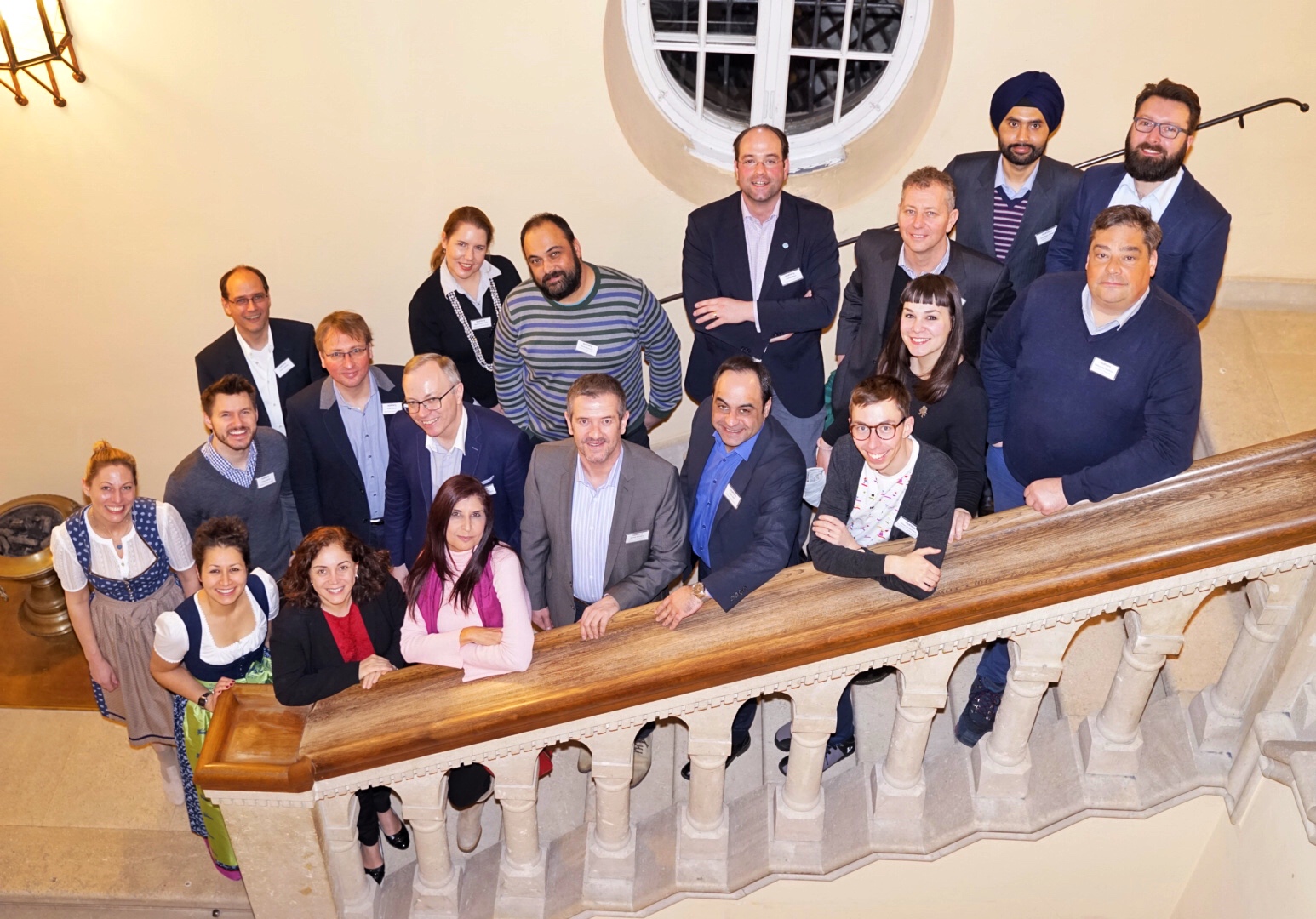
The founding members of bloxberg at Ringberg Castle. Pictures: Clemens Fantur
-
Done DEAL: All German research articles in Wiley journals to be published open access under new transformative agreement
Germany’s Projekt DEAL and the publisher John Wiley & Sons have entered a ground-breaking transformative agreement, in line with the objectives of the Open Access 2020 initiative.This has been officially announced today in Berlin in the course of the 14th annual conference for Academic Publishing in Europe (APE).
Under this new agreement, all authors affiliated with 700 academic institutions in Germany will retain copyright and their accepted articles will be published open access in Wiley journals. Almost 10,000 articles by German researchers are published a year in Wiley journals, constituting around 9% of the publisher’s total output. The agreement also grants students and faculty read access to the full Wiley journal portfolio including backfiles starting with 1997. The national-level agreement is based on a “publish and read” model in which fees are paid by institutions—not for subscriptions but for open access publishing services.
(Guido Herrmann, Wiley and Frank Sander, MPDL)
In order to enable the signing of the DEAL contract with Wiley, the Max Planck Society, as a member of the Alliance of Science Organisations behind the DEAL Consortium, founded MPDL Services GmbH. MPDL's General Manager Frank Sander therefore co-signed the agreement today.
The agreement will be made public in a month’s time and an English-language FAQ will be released by the Projekt DEAL working group.
Read the official press release
-
Astronomy & Astrophysics signs transformative Open Access agreement with Max Planck Society
We are excited about our new transformative agreement with EDP Sciences for Astronomy & Astrophysics, which is the single most important journal for the Max Planck Society, as measured by output. Almost 500 papers from Max Planck authors are published in Astronomy & Astrophysics per year.
-
Max Planck Society discontinues agreement with Elsevier; stands firm with Projekt DEAL negotiations
The President and scientific council members of the Max Planck Society (MPS), one of the world’s largest research performing organizations, counting 14,000 scientists who publish 12K new research articles a year—around 1500 of which in Elsevier journals, have mandated the Max Planck Digital Library to discontinue their Elsevier subscription when the current agreement expires on December 31, 2018. With this move the Society joins nearly 200 universities and research institutions in Germany who have already cancelled their individual agreements with Elsevier in the course of 2016 and 2017 and affirmed their support of the national licensing framework Projekt DEAL, led by the German Rector’s Conference.
In response to the untenably increasing cost of access to scholarly journals and, more importantly, the stifling effect of the antiquated paywall system on the research process, Projekt DEAL was established to negotiate nationwide transformative agreements as a means to transition from the current subscription system to one based on open access publishing models that enable complete and immediate access to the latest research for scholars and citizens alike, free of cost or other barriers. “DEAL is fully in line with the objectives of the OA2020 Initiative, which is strongly supported by the Max Planck Society,’ emphasized MPS President Martin Stratmann.
The transformative agreement that the DEAL negotiators propose to the major academic publishers is a “publish and read” model covering open access publication of all scholarly articles by authors affiliated with German institutions and, at the same time, grant reading access for German institutions to the publisher’s entire portfolio of electronic journals still behind paywalls.
As no sustainable offer according these fundamental criteria has been forthcoming from the publisher, negotiations with Elsevier were suspended last July. Researchers at the 200 institutions supporting the DEAL negotiations have consequently foregone access to the Elsevier platform and are broadly making use of alternative routes for their research needs. The Max Planck Digital Library has already set in place mechanisms to address the content needs of its researchers when Elsevier shuts off access at the beginning of January.
“The system of scholarly publishing today is a relic of the print era, and we want to activate a real paradigm shift in order to finally utilize the opportunities of the digital age”, says Gerard Meijer, director at Max Planck Society’s Fritz Haber Institute and a member of the DEAL negotiation team. In a strong show of support for the DEAL negotiations, 13 prominent Max Planck Society scientists resigned from their positions as editors and members of the editorial and advisory boards of Elsevier journals in 2017.
“Transformative agreements are one of the primary strategies for driving large scale transition of scholarly publishing to open access and are increasingly being adopted by the scores of international supporters of our global Open Access 2020 Initiative”, says Ralf Schimmer, Deputy General Manager of the Max Planck Digital Library. ”As both producers and consumers of the research articles circulated through their journal platforms, we have the leverage to demand a system that meets the needs of our researchers, and by adopting these transformative agreements, we will be able to achieve our Society’s goal of publishing the vast majority of our researchers’ articles open access in a matter of a few short years. We have already accomplished such deals with some of the most relevant publishers to Max Planck researchers, such as Springer Nature, the Royal Society of Chemistry and the Institute of Physics Publishing. Further publishers will follow in 2019.”
-
New transformative Open Access Agreement with Oxford University Press
The Max Planck Digital Library established a central transformative Open Access agreement with Oxford University Press (OUP) allowing Max Planck Members to publish Open Access in OUP’s journal collection. Open Access charges will be covered centrally by MPDL as of submission date January 1, 2019.
-
Aligning strategies to enable Open Access
A strong signal to the publishers from the 14th Berlin Open Access Conference
The 14th Berlin Open Access Conference, hosted by the Max Planck Society and organized by the Max Planck Digital Library on behalf of the Open Access 2020 Initiative (oa2020.org), has just come to an end after two intense days with 170 participants from 37 countries around the world discussing where the research organizations and their library consortia stand in their negotiations with scholarly publishers in transitioning scholarly publishing to open access. The participants represented research performing and research funding organizations, libraries and government, associations of researchers and other umbrella organizations, many of them holding high-level positions at their organizations. In his welcoming address, Max Planck Society President Martin Stratmann captured the spirit of the meeting when he stated: 'Open Access is the responsibility of all of us'.
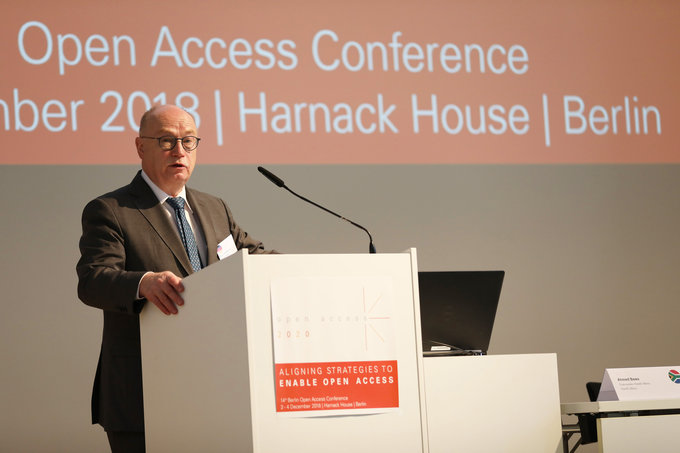
The conference brought to light strong consensus and alignment among the diverse international communities represented around the necessity of stepping up efforts to move away from the subscription-based system of scholarly publishing to open access-based business models. A major focus was placed on transformative agreements (eg “read and publish”), which were identified as perhaps the most viable instrument at the moment to accelerate the transition to open access. As it became clear from statements made by representatives from Japan, the United States, South Africa and others, that readiness to adopt this approach is now extending beyond Europe, where it originated, and is currently being adopted in several countries; in particular, this was emphasized in a bold statement from China, the nation with the largest share of research publications.
After aligning on the goals and strategies during the first day of the conference, the CEOs of the three largest publishers of scholarly journals, Elsevier, John Wiley & Sons, and Springer Nature, were invited by the President of the Max Planck Society, Martin Stratmann, to discuss the global demand for transformative agreements on the second day. The message conveyed to the publishers was that the global research communities are committed to complete and immediate open access, to retaining author copyrights and to negotiating transformative agreements that are temporary, transitional, and cost-neutral as a means to shift to full open access within just a few years with the expectation that cost savings in scholarly communication will follow as market forces take hold. The publishers were called upon to move towards complete and immediate open access according to these principles.
It also came out that there is a strong alignment between the approaches taken by OA2020, Plan S, the Jussieu Call and other approaches dedicated to drive more open access into the system of scholarly communication.
Further reports will soon appear on the homepage of the 14th Berlin Open Access Conference:
https://oa2020.org/b14-conference/Read more in the Nature News
-
The Novel Blockchain Consortium for Science: bloxberg @ Blockchain Munich Meetup
As a keynote speaker the MPDL presented their new project bloxberg at the last Blockchain Munich Meetup. The bloxberg infrastructure is a secure global blockchain established by a consortium of leading research organizations to provide scientists worldwide with decentralized services based on the bloxberg-blockchain. It aims to foster a collaboration among the global scientific community, empowering researchers with robust, autonomous services that transcend institutional boundaries. For example, with consented transactions on the bloxberg infrastructure, research claims need not be limited to one institution alone, but can be confirmed by the whole trusted network. Additionally, researchers can also leverage bloxberg to create a transparent footprint of their work, without revealing its content.
The vision is to have sufficient representation from various scientific entities participating in the consortium, so that the network itself may replace traditional scientific infrastructure such as closed-access publishing of research results, among others.
A great deal of interest was shown by the participants who were really interested in the topic of Blockchain in Science. The MPDL’s vision was lively discussed during and after the talk.
We would like to thank everyone who joined us at the Blockchain Munich Meetup and we hope to see everyone soon!


-
Website launched for Software Licensing Service
Starting today, MPG instituts can now find all information on our Software Licensing Service online. Searching for a product or for licensing conditions? Want to know how you can benefit from the service or how it is organized? Just visit SoLi and find all information you need. Please note that the website can only be accessed from within the MPG IP-range.
-
New open access agreement with Royal Society
Supplementing our existing agreements with open access publishers, MPDL set up a further contract with the Royal Society. Max Planck authors will now benefit from article processing charges (APCs) being covered centrally for the Royal Society’s open access journals Open Biology and Royal Society Open Science. Learn more about how we support open access publishing at:
https://www.mpdl.mpg.de/en/services/service-catalog/oa-goldpublishing
-
Do you know what could make writing articles easier?
We are piloting a new tool that, different from Google Docs, also gives authors the ability to collaborate in the article writing process and share references, figures, equations and tables--all in one environment. This new tool is called SciFlow, an authoring platform that has been expressly customized for Max Planck Society researchers. In SciFlow you will find style templates required by the journals that are most popular among MPG researchers, making it easy to format your article for submission and re-submission according to different journal requirements.
If you have not yet tried SciFlow, go to https://www.sciflow.net where you will find a dedicated Max Planck Society landing page to get started and additional information on open access publishing (access from within a Max Planck IP range required). This new tool is brought to you by the Max Planck Digital Library, your information service provider.
How can we make your work easier? MPDL would like to learn more about the tools and services you use and prefer when you are writing and publishing scientific papers, such as collaborative writing and reference sharing tools like SciFlow, authoring and language editing services, independent peer review services (not associated with a journal), or post publication research communication services. Tell us how we can make your work easier by responding to two quick questions that will help us understand the tools you find useful and what further tools you would like. We want to anticipate your needs and provide you with the best service possible.
Go to the survey:
Thank you for your time and do not hesitate to contact us.
-
A workshop report: Handling of offsetting agreements at MPDL
Offsetting agreements are open access business models that offset subscription costs against publication costs. As instruments of the open access transformation they are intended to enable the transition to purely publication-based open access models. In the latest edition of the “ABI Technik” library journal, Adriana Sikora and Michael Schlachter provide an insight into the back office work with MPDL’s offsetting agreements, presenting all workflows as well as pointing out challenges and problems.
-
New transformative agreement with IOP publishing
With the beginning of the year, MPDL entered in a new transformative agreement with IOP publishing. It includes access to IOP's premium journal collection IOPScience extra as well as allowing authors to publish open access in 36 selected subscription journals under a free Creative Commons Attribution license (CC-BY).
Information for Max Planck authors
-
Blockchainify your research data!
Munich, February, 2018 – The Max Planck Digital Library (MPDL) is pleased to announce a new pilot project with Bernstein Technologies GmbH (Bernstein), which will give MPG-scientists access to the groundbreaking blockchain technology to certify their research data on the Bitcoin Blockchain.

In particular the collaboration between Bernstein and the MPDL will launch a custom version of the Bernstein web application and grant access to a selected group of users within the MPG. Using this technology Bernstein allows researchers at the MPG to create a digital trail of records of their innovation. Therefore designs, inventions and proofs of use can be registered to obtain blockchain certificates that prove ownership, existence and integrity of any IP asset. Thanks to a unique cryptographic layer all notarized information will remain entirely private.
“Being able to certify research data at any state is a big step towards proving and securing data ownership. We are happy to offer our MPG-researchers such an easy while, at the same time, secure tool to certify their research data” says Dr. Frank Sander, General Manager of the MPDL. Marco Barulli, Managing Director of Bernstein is thinking ahead and states that “the present collaboration may also evolve in the implementation of a defensive publishing service combining blockchain certificates and IPFS (InterPlanetary File System) decentralized data storage”.
Both parties believe blockchain and other decentralized technologies will have a strong impact on the way knowledge will be registered and shared in the future to the benefits of science, art, innovation and society.
About Bernstein
Bernstein is a German startup offering blockchain-based solutions for securing intellectual property assets. It combines blockchain certifications with digital timestamps issued by official Time Stamp Authorities (TSA) in different geographies. It allows companies to create a digital trail of records of their innovation processes using blockchain technology. To learn more visit: https://www.bernstein.io/
About Max Planck Digital Library
The Max Planck Digital Library is a service unit within the Max-Planck-Gesellschaft zur Förderung der Wissenschaften e.V. (MPG) dedicated to the strategic planning, development and operation of the digital infrastructures necessary for providing Max Planck Institutes with scientific information, publication support and research data management services. To learn more visit: https://www.mpdl.mpg.de/
-
A great start for the MPDL-Service Roadshow 2018 in Hannover
Enthusiasm for the MPDL-services is continually increasing: being invited to the MPI for Gravitational Physics (Albert-Einstein-Institute), we started our first gig this year on January, 25 in Hannover. Within the institute’s weekly meeting we presented our wide service portfolio which was very well received by the attendees. We were very happy to see that the whole space was full of people who were interested in our talk!
A big thank you goes out to Dr. Frank Ohme who invited us and also to the whole institute’s hospitality!
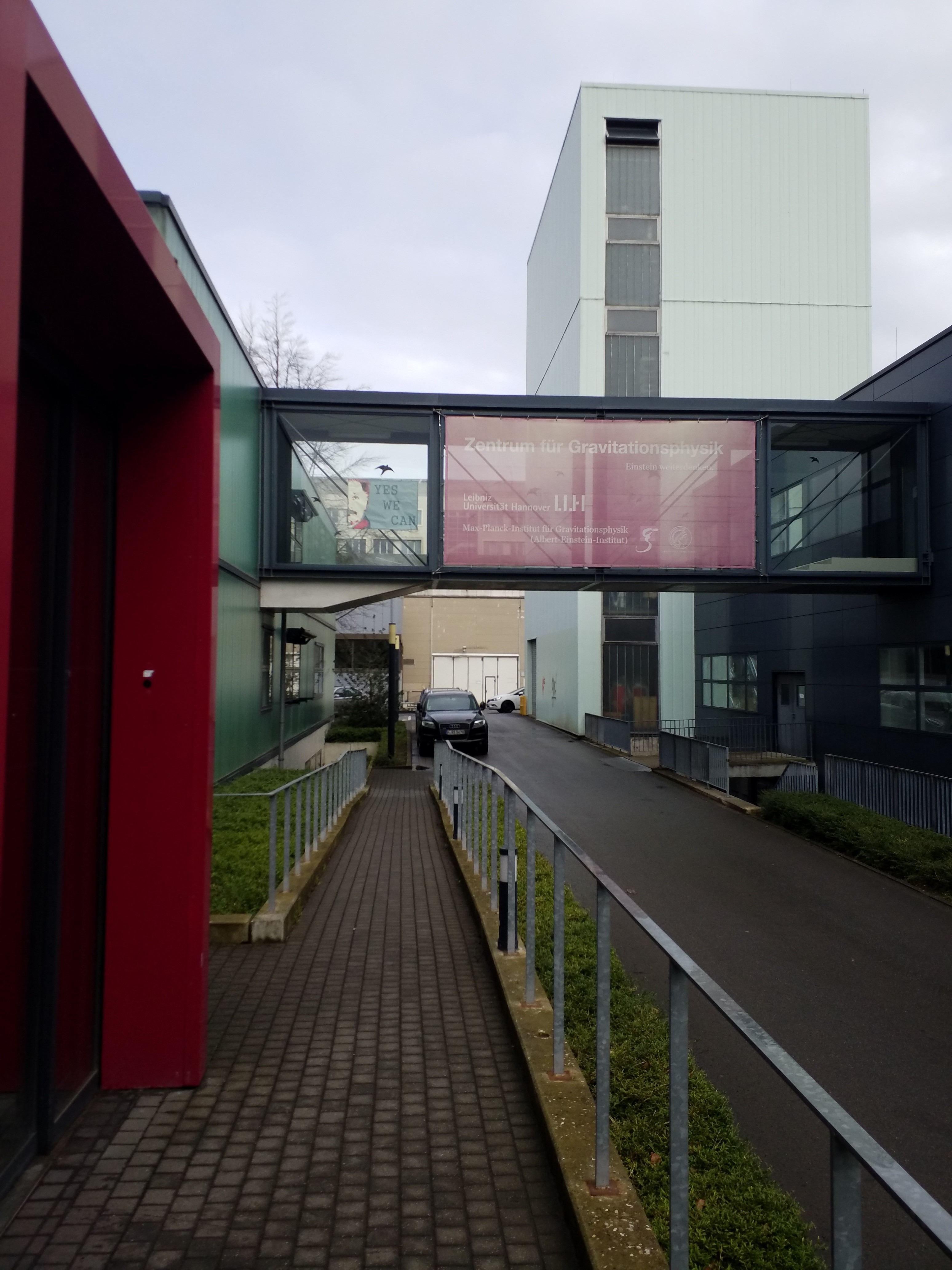
Yes you can! -
Max Planck supports SciPost
Initiated by several leading Max Planck researchers, Max Planck Digital Library, on behalf of the Max Planck Gesellschaft, has provided substantial support for the development of SciPost, a platinum open access publication portal in the field of physics. These funds will allow SciPost to carry out the implementation of a number of projects to enhance and broaden its services to the community.
-
It’s the workflows, stupid! What is required to make ‘offsetting’ work for the open access transition
A recent article by Graham Stone (Jisc) and Kai Geschuhn (MPDL) published in the British library journal UKSG Insights highlights the outcomes of two workshops organized by the Efficiencies and Standards for Article Charges initiative (ESAC) in 2016 und 2017. The paper makes the case for stronger engagement of libraries and consortia when it comes to negotiating and drafting offsetting agreements. The workshops have shown a clear need for an improvement of the current workflows and processes between academic institutions (and libraries) and the publishers they use in terms of author identification, metadata exchange and invoicing. Publishers need to invest in their editorial systems, while institutions need to get a clearer understanding of the strategic goal of offsetting. To this purpose, strategic and practical elements, which should be included in the agreements, were introduced. The paper proposes a set of recommendations for article workflows and services between institutions and publishers, based on a draft document which was produced as part of the 2nd ESAC Offsetting Workshop in March 2017. These recommendations should be seen as a minimum set of practical and formal requirements for offsetting agreements and are necessary to make any publication-based open access business model work.
-
DIVEST OF SUBSCRIPTIONS, INVEST IN OPEN ACCESS!
Open in order to innovate!
In the theme of Open Access Week 2017, OA2020 relaunches its website with a call to libraries worldwide to divest of the traditional subscription model in order to finance innovative, sustainable business and publishing models.
-
Great enthusiasm for MPDL-services at the MPI for molecular Biomedicine in Münster
A great deal of interest in a presentation of the MPDL-services was shown by the MPI for molecular Biomedicine. Therefore the MPDL was asked to present its portfolio at the MISS-seminar on October 20th. The talk at the auditorium was well-attended; also the services were lively discussed by the attendees during and after the presentation. The subsequent happy hour gave everybody a great platform to exchange further ideas.
A big thank you goes to Dr. Gabriele Bixel, the Scientific Administrator, who invited the MPDL to Münster!
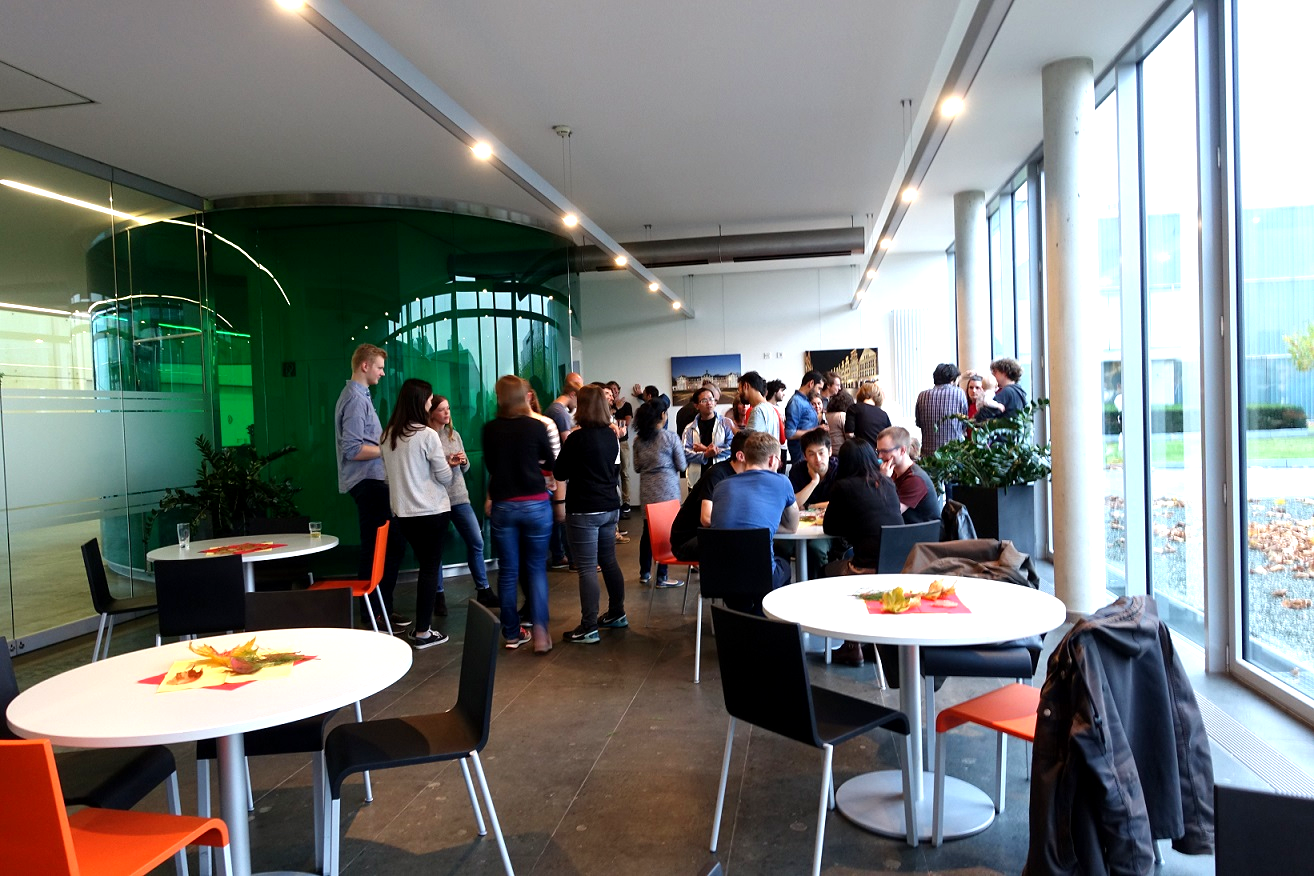
Networking at the happy hour. -
MPDL supports early career scientists at PhDnet GöHub in Göttingen
On September 7th the MPDL was invited to the annual Max Planck PhDnet GöHub in Göttingen. This year the event was hosted by MPI for the Study of Religious and Ethnic Diversity. The MPDL had the opportunity to present its services. The presentations have been met with enthusiasm by the attendees.
The MPDL had the graduates full attention at the library hall of MPI for the Study of Religious and Ethnic Diversity. Thank you for having us! -
MPDL partners with 1science
The Max Planck Digital Library set up an agreement with the Canadian based information provider 1science. By this, Max Planck affiliates receive access to the 1science database "1findr" which is considered to be world’s largest curated open access discovery platform.
Read 1science press release



























